Young people challenging Montana officials over their inaction on climate change are expected back in state court on Tuesday in the ongoing trial over a lawsuit that environmentalists hope will spur changes in the fossil fuel-friendly state
By AMY BETH HANSON and MATTHEW BROWN
Young plaintiffs in a climate lawsuit challenging Montana’s government for not doing enough to combat climate change are seen outside the Lewis and Clark County courthouse, June 12, 2023, in Helena, Mont. A group of Montana youth who say their lives are already being affected by climate change and that state government is failing to protect them are the first of dozens of such efforts to get their lawsuit to trial Monday.
. Young people challenging Montana officials over inaction on climate change are expected back in state court on Tuesday in a first-of-a kind trial of a lawsuit that environmentalists hope will spur changes in the fossil fuel-friendly state.
State officials have sought to downplay Montana’s contributions to global warming as the trial that opened Monday is being closely watched for possible legal precedents even though the scope of the lawsuit has been narrowed in earlier rulings.
The trial is scheduled to last two weeks with 16 young plaintiffs and their attorneys seeking to persuade District Judge Kathy Seeley that the state’s allegiance to fossil fuels endangers their health and livelihoods and threatens future generations.
Grace Gibson-Snyder, 19, of Missoula, Montana — one of the plaintiffs — told the court that smoke from wildfires has gotten worse with climate change and become a “defining experience” of playing soccer in high school. The smoke regularly shrouded her hometown in unhealthy air, forced practice cancellations and kept teammates with asthma from taking the field.
“It’s not pleasant,” Gibson-Snyder said. “It’s so uncomfortable as you’re breathing deeper and deeper.”
After Monday’s opening court session, Gibson-Snyder said she felt empowered “to know we’re being heard. We are telling our stories and I am looking forward to a shift toward a better policy and healthier future for all of us.”
The case is the first of dozens of similar lawsuits to reach trial. Experts say it could set legal precedent but isn’t likely to spur immediate policy changes in Montana. Its state agencies have never denied a permit for a fossil fuel project and the state’s Legislature recently passed new laws favoring oil, gas and coal over renewable energy.
The lawsuit centers on Montana’s constitutional right to a “clean and healthful environment,” and whether that means the state should act to protect residents against worsening climate change. By enlisting plaintiffs ranging in age from 5 to 22, the environmental firm bringing the lawsuit is trying to highlight how young people are harmed by climate change now and in the future.
A lawyer for the state said sparsely populated Montana produces “minuscule” emissions. Montana Assistant Attorney General Michael Russell also said the harms alleged by Gibson-Snyder and the other plaintiffs can’t be traced to specific actions by state officials.
“Climate change is a global issue that effectively relegates Montana’s role to that of a spectator,” he said.
In the three years since the lawsuit was filed, the scope of the case has been narrowed to whether Montana’s Environmental Policy Act — which requires state agencies to balance the health of the environment against resource development — is unconstitutional because it does not require officials to consider greenhouse gas emissions or their climate impacts.
Judge Seeley has said she could rule that the state’s climate change exception in its environmental law is at odds with its constitution, but she can’t tell the legislature what to do to remedy the violation.
Environmentalists have called the bench trial a turning point because similar suits in nearly every state have already been dismissed. A favorable decision could add to a handful of rulings globally that have declared that governments have a duty to protect citizens from climate change.
Climate researcher Steve Running, who with other scientists was awarded the 2007 Nobel Peace Prize for their work on the issue, testified there was “no doubt” climate change was causing disruptions globally. Montana, he added, is particularly vulnerable to rising temperatures due to its reliance on adequate winter snow to keep rivers flowing year round.
Running described an increasingly dire situation of wildfires becoming more severe and more frequent in western North America — causing health impacts across the nation — as heavy fossil fuel use continues to churn out emissions at levels problematic for the atmosphere.
“Climate change is real and the earth is warming up,” Running said. “There’s no alternative explanation.”
Experts for the state are expected to counter that climate extremes have existed for centuries.
Carbon dioxide, which is released when fossil fuels are burned, traps heat in the atmosphere and is largely responsible for the warming of the the climate. Carbon dioxide levels in the air this spring reached the highest levels they’ve been in over 4 million years, the National Oceanic Atmospheric Administration said earlier this month. Greenhouse gas emissions also reached a record last year, according to the International Energy Agency.


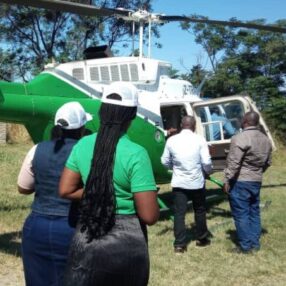

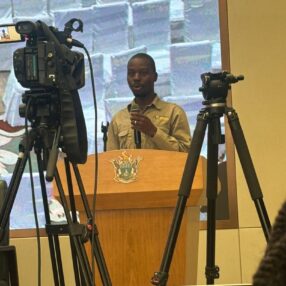

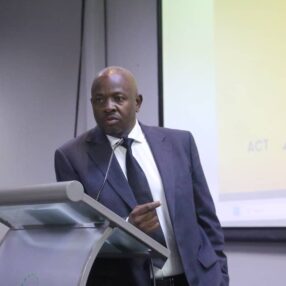







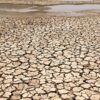














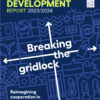




















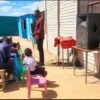




















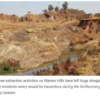























































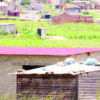









































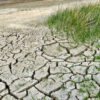





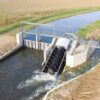




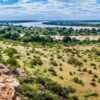

































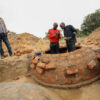






















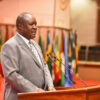


















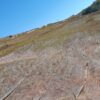




























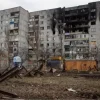






























































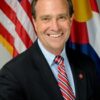


Comments
zoritoler imol August 6, 2023 at 1:48 am
Thank you, I have just been searching for information about this subject for ages and yours is the best I have discovered till now. But, what about the bottom line? Are you sure about the source?
https://www.zoritolerimol.com
Replygralion torile August 13, 2023 at 12:03 am
It’s perfect time to make some plans for the future and it is time to be happy. I have read this post and if I could I desire to suggest you some interesting things or tips. Perhaps you could write next articles referring to this article. I wish to read even more things about it!
http://www.graliontorile.com/
Replyzoritoler imol August 20, 2023 at 10:46 pm
Enjoyed looking at this, very good stuff, thanks.
https://www.zoritolerimol.com
ReplyBlockchain Contract Generator August 25, 2023 at 4:14 pm
Hello there, I found your web site via Google while looking for a related topic, your site came up, it looks great. I’ve bookmarked it in my google bookmarks.
https://officeblock.io
ReplyЗаймы на карту без отказа October 2, 2023 at 6:24 am
Instagram стал для меня источником не только развлечений, но и полезной информации. На днях я узнал о сайте wikzaim, где предлагаются займы под 0%. Я без колебаний оформил займ и получил 6000 рублей без всяких процентов.
ReplyВыкуп авто October 3, 2023 at 3:38 am
Оформить срочный автовыкуп skupkavto.ru
Рады приветствовать Вас в компании быстрого выкупа авто. Мы занимаемся автомобилями уже много лет и имеем прекрасный опыт, высокую скорость оформления договоров, перевода денежных средств и индивидуальной работы с каждым клиентом. Про нас возможно посмотреть на сайте skupkavto.ru много полезной информации прямо сейчас. Заходите, читайте, звоните нам.
По теме [url=https://skupkavto.ru/]выезд оценщика[/url] мы Вам непременно поможем. Наша команда работает быстро и внятно и готова взять любой авто в заказ. Обычно бывает так, что сложно продать самостоятельно свой автомобиль. Тем более, если он после ДТП, в кредите или с большим пробегом. Не каждый покупатель будет готов на вашу запрашиваемую цену, ведь любой хочет получить хороший вариант за свой личный бюджет. Мы рады принять практически любой автомобиль, поэтому, если это ваш случай, быстрее позвоните нам.
По поводу быстрого выкупа, оставляйте заявку на нашем сайте skupkavto.ru или позвоните нам. Контактный телефон +7(964)765-97-97 или оформите обратный звонок. Вызывайте нашего квалифицированного оценщика в любое удобное для Вас время. Наши специалисты имеют дело с любыми проблематичными автомобилями и знают как решить ситуацию. По этому, если Вы считаете свой авто неисправным или сильно битым, не отчаивайтесь и скорее звоните нам.
По части [url=https://skupkavto.ru/]кредитный автомобиль[/url] мы ждем Вас на сайте. За большое количество лет очень многие люди воспользовались сетью наших филиалов компании и остались удовлетворены. На сайте skupkavto.ru можете найти отзывы от клиентов или написать собственный. Также всю важную информацию Вы сможете найти на нашем интернет сайте- какие автомобили мы скупаем, как осуществляется срочный выкуп, наши преимущества и другое.
Актуален обмен по Трейд ин, где мы выкупаем Ваш авто, а Вы выбираете из нашего автопарка. Работа со всеми документами лежит полностью на нас, Вам не стоит переживать о бумажной волоките. Очень много преимуществ в сторону того, чтобы с продажей авто прийти именно к нам. С радостью Вам поможем.
Replyкредитный автомобиль October 4, 2023 at 9:44 pm
Понял, что пора менять свою Kia. На авито увидел рекламу skupkavto.ru. Сервис реально крутой: приехали быстро, денег дали столько, сколько обещали, машину забрали. Все бы так работали!
ReplyMacroapog October 9, 2023 at 3:52 pm
Вернувшись с работы, я не смог открыть дверь дома. Панику сменила благодарность, когда специалисты из newzamok.ru быстро приехали и починили замок. Их эффективность и мастерство выше всяких похвал.
Replyказино онлайн October 14, 2023 at 5:11 am
Ищете место, где можно в полной мере насладиться азартными играми? На caso-slots.com вас ждут лучшие [url=https://caso-slots.com/]казино онлайн[/url] на реальные деньги! Присоединяйтесь к нам и откройте для себя мир больших выигрышей и незабвенных эмоций!
Replyзайм на карту онлайн October 15, 2023 at 12:43 am
Жизнь непредсказуема, и иногда нас ожидают финансовые испытания, требующие мгновенного решения. В такие моменты необходим надежный партнер, который поможет преодолеть возникающие преграды. WikZaim – именно такой партнер. На нашем сайте собраны предложения от МФО, предоставляющих [url=https://wikzaim.ru/]микрозаймы на карту онлайн без отказов[/url] без процентов и отказов.
Мы понимаем, как важно в такие моменты действовать быстро. Поэтому на WikZaim процесс получения займа максимально упрощен. Несколько простых шагов – и необходимая сумма уже на вашем счету. Без долгих ожиданий, проверок и бумажной волокиты.
Каждая МФО, включенная в наш список, тщательно отобрана нашей командой экспертов. Мы гарантируем, что вам будут предложены только те услуги, которые соответствуют высоким стандартам качества и безопасности. Ваш комфорт и удовлетворение – наш главный приоритет.
Replyмерцающий световой занавес October 15, 2023 at 4:33 pm
Сайт neoneon.ru просто поражает своим ассортиментом светодиодных изделий. Я уже несколько раз заказывал у них гибкий неон и led гирлянды для праздничных декораций. Качество всегда на высоте, и цены приятно удивляют – [url=https://neoneon.ru/]неон цветной[/url]
Replyлегкий доступ к финансам October 16, 2023 at 12:01 am
На днях у меня случился несчастный случай, и мне срочно понадобилось 8000 рублей на лечение. В поиске решения я обратился к Google и нашёл все-займы-тут.рф. [url=https://все-займы-тут.рф/]займ на карту без отказа[/url] был моим спасением. Я получил необходимую медицинскую помощь, а сайт занял особое место в моих закладках!
Replyвсе займы онлайн на карту October 16, 2023 at 6:46 am
Время от времени у каждого из нас возникают неотложные финансовые нужды. Благодаря сайту zaim52.ru и их подборке новых МФО 2023 года, я всегда мог найти удобные и выгодные варианты [url=https://zaim52.ru/]займы онлайн на карту[/url], что помогает сохранить финансовую стабильность и уверенность в будущем.
Replyзайм без процентов онлайн October 16, 2023 at 11:49 am
Неожиданный рост цен на продукты заставил меня искать дополнительные средства. Zaim52.ru предоставил мне подборку проверенных МФО 2023 года, и я легко взял займ [url=https://zaim52.ru/]займы онлайн на карту[/url] для покрытия расходов.
Replyремонт по фиксированной стоимости October 16, 2023 at 2:34 pm
Стоимость ремонта квартиры под ключ remont-siti.ru
Делаем ремонт любой сложности высокого качества в Москве и по Московской области. Фирма СК СИТИ СТРОЙ имеет положительный опыт строительства, проектирования, ремонта и рада представить свои услуги на сайте remont-siti.ru уже сейчас. Переходите на наш онлайн портал и читайте подробности.
По вопросу [url=https://remont-siti.ru/tseny/]сколько стоит ремонт квартиры[/url] мы рады Вам оказать помощь. Если Вам нужен ремонт в Вашей квартире, или в только что купленной, новой, то Вы пришли по верному адресу. Реализуем все типы ремонта, от простого чернового, до создания дизайн-проекта и выполнения работы под ключ. Работаем по всей Москве и области. На веб портале remont-siti.ru можно рассчитать прайс и длительность работы за 1 минуту. Введите подходящие параметры: площадь помещения, тип жилья, срочность, тип строительных работ и другие и смотрите сразу же примерный ответ.
Сотрудничать с данной компанией весьма благоприятно, а также мы имеем ряд преимуществ. Цена ремонта не изменится после его реализации. Многие компании, начав ремонт называют одну сумму, которая после окончания работ умножается в пару раз. Здесь такого не будет. Мы предоставляем гарантию на все работы 2 года и исправим все недостатки, если вдруг они окажутся, с огромным удовольствием. Мы начинаем работать без предоплаты, а оставшиеся стройматериалы покупаем у вас, чтобы не захламлять Вашу кладовку ненужными предметами. Команда работников, которые имеют огромный опыт, регулярно проходят курсы повышения квалификации, чтобы понимать все новые технологии ремонта.
Если Вы искали [url=https://remont-siti.ru/tseny/]цены на ремонт квартир[/url] в интернете, то переходите на указанный сайт и оформляйте заявку. Наш специалист приедет к Вам и посчитает цену запланированных работ. Цена зависит от трудности работы, отделочных материалов, выбранного вида работ и стиля комнаты. На сайте remont-siti.ru Вы сможете найти таблицы установленных цен на различные виды работ. А ещё много уже готовых вариантов можно посмотреть в нашей фото подборке.
Найти нас можно по адресу: г. Москва, ул. Новослободская, д. 20, к. 27, оф. 6. График работы с 9:00 до 21:00. Позвоните по контактному телефону +7(495)153-60-54 и задавайте любые возникшие вопросы.
ReplyМикрозайм на карту: моя история October 18, 2023 at 4:41 am
Каждому из нас время от времени требуются дополнительные финансовые средства. Я не исключение. Сегодня хочу рассказать о своем опыте обращения за микрозаймом и почему я теперь с уверенностью рекомендую сайт [url=https://mikro-zaim-online.ru/]mikro-zaim-online.ru[/url].
Как-то перед самым отпуском я осознал, что моих сбережений не хватит, чтобы покрыть все расходы на путешествие. Нужно было срочно найти 15 000 рублей. В этот критический момент мне подсказали обратить внимание на [url=https://mikro-zaim-online.ru/]mikro-zaim-online.ru[/url], и я остался поражен уровнем сервиса и вниманием к клиенту.
Этот сайт собрал в себе множество МФО, предоставляя возможность выбора наилучших условий для микрозайма. Что особенно приятно, там можно найти предложения о займах без процентов, что в моем случае стало настоящим спасением.
Заполнив простую форму на сайте, я указал сумму и срок, на который мне нужен был микрозайм. Процедура заняла минимум времени, и, к моему удивлению, я получил одобрение почти мгновенно. Деньги быстро поступили на мою карту, и я смог полностью насладиться своим отпуском, не заботясь о финансах.
Теперь я уверенно рекомендую [url=https://mikro-zaim-online.ru/]mikro-zaim-online.ru[/url] друзьям и знакомым. Если вам срочно нужны деньги, а времени на поиск и сравнение предложений от разных МФО нет, этот сайт станет вашим надежным партнером. Благодаря широкому выбору предложений и прозрачным условиям, каждый сможет найти оптимальный вариант для себя. Я лично убедился в его эффективности и надежности!
Replyнавесные потолки October 19, 2023 at 3:59 am
Цена на натяжные потолки rukimastera.ru
Предлагаем Вашему вниманию фирму, которая специализируется на установке натяжных потолков «Руки мастера» в Москве. Натяжные потолки-самая востребованная отделка помещений на настоящий момент. Потому что покрытие достаточно безопасно для человека, имеет большой срок службы 25 лет, небольшие цены, скоростную установку, широкий выбор цветов, материалов, возможность встраивания различных светильников и красивый внешний вид. За подробностями переходите на rukimastera.ru прямо сейчас.
По теме [url=https://rukimastera.ru/]натяжные потолки в москве цены с установкой[/url] – мы Вам с удовольствием поможем. Наша организация уже долгое количество лет работает в данной сфере, имеет хороший опыт, хорошие отзывы клиентов и выгодные предложения. Обратите внимание, у нас часто проходят выгодные акции для клиентов, где можно натянуть потолок с отличной скидкой.
Делаем потолки в любое пространство: ванная, гостиная, коридор, офис, прихожая, туалет и другие. В наличии разные производители полотен, вид покрытия, составы материала и виды потолков. А также сделаем любой дизайн: 3D потолки, волна, с подсветкой, подсветки через полотно, теневой потолок euro kraab и другие. Встраиваем любые светильники, которые пожелает заказчик. Все самые новые тренды в области натяжных потолков мы знаем и превращаем в жизнь. Наши работники rukimastera.ru постоянно повышают свою квалификацию, поэтому можете отдаться полностью нашим специалистам.
Относительно [url=https://rukimastera.ru/]натяжные потолки[/url] в интернете, мы знаем об этом всё. Главный офис находится по адресу: Москва, ул. Иркутская, д. 3, стр. 12. Звоните по номеру телефона +7(495)125-33-74 и задавайте возникшие вопросы. На нашем веб сайте Вы можете самостоятельно рассчитать цену навесного потолка. Введите площадь и качество покрытия, оставьте собственные данные и мы свяжемся с Вами в ближайшее время. Если будет востребовано, воспользуйтесь беспроцентной рассрочкой. Мы будем рады с Вами сотрудничать.
Replyадвокат по экономическим преступлениям October 19, 2023 at 4:46 pm
Юрист по семейным делам advokat-karbanov.ru
Никому не известно, когда может пригодиться помощь юриста. Потому, хотим представить Вам адвокатское бюро Карбанов и партнеры, которое представляет все разновидности юридических услуг. На сайте advokat-karbanov.ru Вы найдете все детали, перечень услуг, контактные данные.
По части [url=https://advokat-karbanov.ru/advokat-po-arbitrazhnyem-delam/]адвокат по арбитражным делам[/url] Вы попали по правильному адресу. Пётр Карбанов – основной управляющий партнер нашего бюро, популярный эксперт на тв и радио. Адвокат, который может решить практически любые юридические задачи. Также у нас опытная сильная команда, работающая над делами какого угодно характера.
Позвоните на нашу горячую линию по телефону +7(495)642-53-39 или закажите обратный звонок на сайте advokat-karbanov.ru прямо сейчас. Оставьте свой номер и имя и мы Вам перезвоним. Либо можно списаться с нами в популярных мессенджерах. Наша команда имеет большой опыт в юридическом деле, ведь лишь образования не достаточно, основное это опыт в реальности. Ещё на стадии знакомства с Вашим делом, наши специалисты способны понять его перспективы и возможный итог.
Если Вы искали [url=https://advokat-karbanov.ru/advokat-po-semeynyem-delam/]адвокат по семейным спорам[/url] в сети интернет, то быстрее переходите на наш веб ресурс. Там Вы найдете весь список наших услуг. Это: адвокат по гражданским делам, защита прав потребителей, жилищный юрист, трудовые споры, автоюрист, наследственные споры, исполнительное производство, морские споры, взыскание долгов и многое другое.
Мы расположены по адресу: 115088, Москва, ул. Угрешская, д.2, стр.1, оф. 403. Работаем пошагово: для начала необходимо оформить заявку или сделать звонок нам. Далее мы определяем дату и время встречи, которая для Вас будет бесплатной. Согласование юридической позиции по вашему делу и обсуждение цены услуг, заключение договора, подготовка документации и представительство в суде. Действуем строго по плану и рассчитываем только на положительный итог по делу. Обращайтесь и мы непременно Вам окажем помощь.
ReplyCntbank October 20, 2023 at 4:24 pm
Если вы ищете быстрый и надежный способ получить дополнительные средства, рекомендую [url=https://cntbank.ru/]микрозайм срочно без отказа на карту[/url]. Это простой и удобный способ решить ваши финансовые проблемы.
ReplyCntbank October 21, 2023 at 4:37 am
Жизнь полна неожиданных поворотов, и иногда наш финансовый баланс может оказаться под угрозой. Но всегда есть выход! Не позволяйте мелким проблемам останавливать вас. С [url=https://cntbank.ru/]онлайн займами без отказов[/url], вы всегда будете готовы к любым испытаниям. Ведь каждая проблема – это новый шанс стать сильнее.
ReplyUggavstroRew October 21, 2023 at 1:46 pm
[url=https://telegra.ph/Avstralijskie-UGG-iz-naturalnogo-meha-10-20]UGG[/url] – это не только марка обуви, но и настоящий феномен моды, история которого насчитывает несколько десятилетий. Начав свой путь с простых и удобных сапог для серферов, [url=https://telegra.ph/ZHenskie-originalnye-UGG-iz-Avstralii-10-20]UGG[/url] превратился в мировой бренд, обувь которого выбирают миллионы мужчин и женщин по всему миру.
Женская коллекция
Женские [url=https://telegra.ph/Uggi-oficialnyj-sajt-internet-magazin-10-20]UGG[/url] впервые получили широкую известность благодаря своему удобству и теплу. Начиная с классических моделей, выполненных из натуральной овчины, дизайн [url=https://telegra.ph/ZHenskie-uggi-kupit-v-Moskve—TOP-5-luchshih-modelej-10-20]UGG[/url] прошел путь развития, включая в себя различные стили, материалы и декоративные элементы. Современные коллекции предлагают разнообразные модели – от традиционных угги до стильных ботинок и туфель, отражая последние тренды в моде и оставаясь верными своей философии комфорта и качества.
Мужская коллекция
Мужские [url=https://telegra.ph/Kupit-uggi-v-Moskve—oficialnyj-internet-magazin-avstralijskih-UGG-10-20]UGG[/url] также претерпели заметные изменения. Если раньше предпочтение отдавалось простоте и функциональности, то сейчас мужская линия [url=https://telegra.ph/ZHenskie-uggi-kupit-v-Moskve—TOP-5-luchshih-modelej-10-20]UGG[/url] радует разнообразием. От кожаных ботинок до уютных домашних тапочек – выбор стал значительно шире. Мужчины ценят [url=https://telegra.ph/Kupit-uggi-v-Moskve—oficialnyj-internet-magazin-avstralijskih-UGG-10-20]UGG[/url] за комфорт, долговечность и универсальность, что позволяет носить эту обувь в самых разных ситуациях.
Эволюция восприятия
Восприятие [url=https://telegra.ph/Kupit-uggi-v-Moskve—oficialnyj-internet-magazin-avstralijskih-UGG-10-20]UGG[/url] также претерпело изменения на протяжении лет. Если изначально они ассоциировались с кэжуал-стилем и домашним уютом, то сегодня [url=https://telegra.ph/ZHenskie-originalnye-UGG-iz-Avstralii-10-20]UGG[/url] – это символ стиля и статуса. Знаменитости, модные блогеры и инфлюенсеры часто демонстрируют свою любовь к этой обуви, включая ее в самые разные образы – от повседневных до более элегантных.
Эволюция стиля [url=https://telegra.ph/Uggi-oficialnyj-sajt-internet-magazin-10-20]UGG[/url] – это история о том, как обувь, созданная для комфорта, смогла завоевать мир моды, пройдя путь от простых сапог из овчины до разнообразных коллекций для мужчин и женщин всех возрастов. Спустя годы [url=https://telegra.ph/ZHenskie-originalnye-UGG-iz-Avstralii-10-20]UGG[/url] продолжает оставаться верным своим корням, предлагая обувь, которая объединяет в себе уют, качество и современные тренды.
Replyкупить угги короткие женские October 22, 2023 at 4:12 am
Когда температура за окном начинает неумолимо снижаться, многие мужчины и женщины обращают свой взгляд на [url=https://telegra.ph/Kupit-uggi-v-Moskve—oficialnyj-internet-magazin-avstralijskih-UGG-10-20]UGG[/url]. Эта обувь уже давно стала символом уюта и тепла, предоставляя своим владельцам максимальный комфорт в холодное время года. Но почему именно [url=https://telegra.ph/ZHenskie-originalnye-UGG-iz-Avstralii-10-20]UGG[/url] столь высоко ценится в зимний период?
Основной ответ кроется в уникальном материале, из которого изготавливаются эти сапоги – натуральной овчине. Она обладает выдающимися теплоизоляционными свойствами, обеспечивая сохранение тепла даже в самые морозные дни. Овчина позволяет ногам “дышать”, регулируя температуру и влажность внутри сапога, благодаря чему ноги остаются теплыми, но не перегреваются.
Комфорт, который предоставляют [url=https://telegra.ph/ZHenskie-originalnye-UGG-iz-Avstralii-10-20]UGG[/url], не ограничивается только теплом. Мягкость, легкость и гибкость обуви делают ее идеальным выбором для длительных прогулок. В [url=https://telegra.ph/ZHenskie-uggi-kupit-v-Moskve—TOP-5-luchshih-modelej-10-20]UGG[/url] ноги не устают, обеспечивая чувство комфорта на протяжении всего дня.
Эргономичный дизайн и продуманная конструкция сапог гарантируют, что они идеально садятся на ногу, не вызывая дискомфорта. Мужчины и женщины одинаково ценят [url=https://telegra.ph/Uggi-oficialnyj-sajt-internet-magazin-10-20]UGG[/url] за их способность обеспечить непревзойденное удобство и тепло, не жертвуя при этом стилем.
Эстетический аспект также играет роль. Разнообразие моделей и цветов позволяет каждому выбрать сапоги [url=https://telegra.ph/ZHenskie-uggi-kupit-v-Moskve—TOP-5-luchshih-modelej-10-20]UGG[/url], которые идеально сочетаются с индивидуальным стилем и гардеробом. Будь то классические бежевые сапоги или более яркие и дерзкие модели, [url=https://telegra.ph/Avstralijskie-UGG-iz-naturalnogo-meha-10-20]UGG[/url] всегда выглядят стильно и актуально.
В конечном итоге, любовь мужчин и женщин к [url=https://telegra.ph/ZHenskie-uggi-kupit-v-Moskve—TOP-5-luchshih-modelej-10-20]UGG[/url] в холодное время года объясняется совокупностью факторов: непревзойденным комфортом, теплом, качеством и стилем. Это делает их незаменимым элементом зимнего гардероба для многих людей по всему миру.
Replysolargy.ru October 22, 2023 at 2:06 pm
Системы солнечного освещения solargy.ru
Предлагаем Вам несравненную в России систему естественного освещения SOLARGY для помещений без окон или с малым освещением. Может стать прекрасным решением освещения для множества объектов, как жилых домов, так и промышленных помещений, офисов, школ. Узнайте все обстоятельства на онлайн портале solargy.ru уже сейчас.
Если Вам необходимо [url=https://solargy.ru/catalog/]световоды для освещения помещений[/url] в Казани, то Вы на верном пути. Наша организация реализуется в данной сфере уже большое количество лет и знает всё о представленном типе освещения. КЕО значит отличной альтернативой простым окнам, прибавляет яркость естественного и искусственного освещения. Наши реализованные проекты и их иллюстрации можно увидеть на нашем онлайн сайте. Это: школьные комплексы, жилищные комплексы, частные дома, фабрики и многие другие проекты.
Оформить запрос на КЕО расчет возможно на solargy.ru в любое комфортное для Вас время. В конкретной форме введите свои данные: название организации, ФИО, адрес, телефон и другие. А также дополнительные задания по поводу предстоящих работ. Мы Вам позвоним в самом ближайшем времени с готовым расчетом и дадим все рекомендации.
По поводу [url=https://solargy.ru/]производство световодов[/url] обращайтесь в нашу компанию. Мы расположены по адресу: г. Ижевск, Проспект конструктора М. Т. Калашникова, д. 7. Звоните по номеру телефона 8(800)200-0-602 и наши специалисты ответят на любые Ваши вопросы. Световоды на насущный день являются трендом стиля многих помещений. А ещё, их можно добавить в строительство на любом моменте, что очень удобно. При том, в ассортименте большое количество разновидностей световодов различных цветов и размеров и любой покупатель подберет под себя, что ему требуется. Во всяком случае, мы выразим Вам помощь в подборе, проконсультируем и предоставим все рекомендации. Звоните прямо сейчас, мы будем рады с Вами сотрудничать.
ReplyRichardlypow October 22, 2023 at 9:22 pm
Why settle for ordinary when extraordinary is within reach? Our [url=https://telegra.ph/Unleashing-the-best-deals-your-ultimate-guide-to-buying-watches-online-10-22]watch sale online[/url] is a curated ensemble of timepieces that echo the symphony of sophistication with every tick. Elegance, precision, and affordability coexist in harmony, waiting to grace your wrist.
ReplyUggaustor October 23, 2023 at 2:37 am
Холодная погода не страшна с уггами от UGG Australia. И что самое лучшее – вы можете купить угги по акции. Угги для всех вкусов и стилей ждут вас на нашем сайте.
Сайт: [url=https://uggaustralia-msk.ru/]uggaustralia-msk.ru[/url]
ReplyАдрес: Москва, 117449, улица Винокурова, 4к1
Uggaustor October 23, 2023 at 4:41 am
Зима не за горами, и это идеальное время купить оригинальные Угги. В нашем интернет-магазине вы найдете лучший выбор стильных и комфортных Угги. Не упустите возможность обновить свою обувь!
Сайт: [url=https://uggaustralia-msk.ru/]uggaustralia-msk.ru[/url]
ReplyАдрес: Москва, 117449, улица Винокурова, 4к1
естественное освещение помещений October 24, 2023 at 10:05 am
Живите ярче с [url=https://solargy.ru/]solargy.ru[/url]! Установка световодов – простой способ обеспечить комфорт и уют в вашем доме.
Replyрасчет естественного освещения в производственных помещениях October 24, 2023 at 12:33 pm
Нужно было осветить подвал. В гугле нашел [url=https://solargy.ru/]solargy.ru[/url], поехал по адресу и купил там световоды, которые решили нашу проблему с освещением?.
Replyзайм на карту мгновенно October 24, 2023 at 4:54 pm
Неожиданный подарок для жены требовал срочных инвестиций. Благодаря [url=https://cntbank.ru/]cntbank.ru[/url] с его выбором компаний по срочным займам и акцией “займ без процентов”, я смог порадовать любимую без ущерба для семейного бюджета.
Replyвзять займ на карту онлайн без проверок October 24, 2023 at 6:32 pm
Оказавшись в непростой ситуации с поломкой моего автомобиля, я поняла, что ремонт обойдется в круглую сумму. На портале [url=https://cntbank.ru/]cntbank.ru[/url] я обнаружила множество компаний по срочным займам. Благодаря акции “займ без процентов”, сумела вовремя отремонтировать машину без переплат.
ReplyDavilaMic October 24, 2023 at 11:13 pm
Индивидуальные русские парные в Москве termburg.ru
Представляем Вам лучшее пространство для отдыха с родными и друзьями, наслаждения и возрождения сил — термальный центр Термбург. Предлагаем отдых для взрослых и детей по доступным ценам в разнообразных саунах, бане, бассейне с каталогом услуг. Мы чтим славянские корни, историю и традиции и с удовольствием делимся с нашими посетителями ими. Ваш отдых будет не только расслабляющим, но и очень интересным. На онлайн портале termburg.ru Вы найдете множество полезной информации.
По запросу [url=https://termburg.ru/]пилинг рыбками цена[/url] переходите на указанный веб портал. Более 10 разных парных, освежающий бассейн, терраса с купелями с замечательным видом на парк и многое другое ожидает Вас в нашем комплексе. Здесь Вы можете попробовать как общественные парения, так и индивидуальные, выбрав услугу из нашего каталога. Переходите в фотогалерею и посмотрите как выглядят наши сауны и парные. А также прочтите отзывы от наших гостей или напишите свой после пребывания у нас.
На сайте termburg.ru Вы можете сразу записаться к нам на посещение. Либо звоните по номеру телефона +7(909)167-47-46 по режиму – понедельник-воскресенье, с 9:00 до 23:00. Находимся по адресу: Москва, ул. Гурьянова, д. 30, 2 этаж. Также загляните в наш прайс-лист, где есть цены на все услуги. Это: бани-бочки, мультикаменная баня, песчаная сауна, сауна с гималайской солью, финская парная и многие другие. А также много дополнительных услуг: солевой скраб, сладкий пилинг, обёртывание, парение на березовых вениках, авторское парение “Ягодный спас”, термо-пар на компанию, пилинг ног рыбками.
Оформить бронь на [url=https://termburg.ru/price-list/]медовое парение[/url] возможно прямо сегодня по указанному телефону. Либо оставьте заявку на интернет ресурсе termburg.ru и мы будем счастливы принять Вас в комплексе. Дадим ответы на на все возникшие вопросы по поводу Вашего визита, дадим рекомендации и советы для незабываемого отдыха. Отдых для всей семьи в приятной атмосфере, это то, чего Вы достойны.
Replyсрочно взять займ без проверок на карту October 26, 2023 at 2:36 am
В преддверии праздников я понял, что не хватает денег на подарки для семьи. Сайт cntbank.ru предложил мне идеальное решение – срочный займ на карту. Я сразу же оформил заявку, и мне быстро одобрили займ. Так я смог порадовать своих близких замечательными подарками.
Replymoskvadiplom.ru October 26, 2023 at 5:51 am
Я решил поступить в вуз зарубежом, но для этого требовался аттестат за 11 класс. К моему сожалению, оригинал был утерян. Не зная, что делать, я обнаружил сайт [url=https://www.moskvadiplom.ru/]moskvadiplom.ru[/url], где быстро и без проблем приобрел нужный мне документ.
Replyиндивидуальные русские парные October 26, 2023 at 10:24 am
На [url=https://termburg.ru/]termburg.ru[/url] каждый найдет что-то особенное для себя. Термальные ванны, развлечения для детей и взрослых – все это в Termburg.
Replyиндивидуальные парные групповые October 26, 2023 at 12:04 pm
Термбург приглашает вас насладиться миром релакса и комфорта. Узнайте больше на [url=https://termburg.ru/]termburg.ru[/url].
Replyзайм онлайн на карту срочно October 26, 2023 at 3:09 pm
Моя кошка внезапно заболела, и мне нужны были деньги на лечение. Я нашел сайт cntbank.ru и быстро оформил срочный займ на карту. Благодаря простому процессу и быстрому получению денег, я смог оплатить лечение и вернуть свою кошку домой.
Replyзаймы на карту круглосуточно October 26, 2023 at 6:24 pm
Когда у меня возникли финансовые трудности, cntbank.ru стал настоящим спасением. Срочный займ на карту был оформлен быстро, и условия были прозрачными и понятными. Рекомендую этот сайт всем, кому нужна финансовая помощь в срочном порядке!
ReplyКазино играть October 26, 2023 at 10:42 pm
Хотите найти казино с высоким рейтингом? Заходите на [url=https://parazitizm.ru/]parazitizm.ru[/url] и изучайте подробные обзоры лучших игорных площадок. Мы поможем вам сделать правильный выбор, чтобы ваша игровая сессия была максимально прибыльной и увлекательной. Удачи вам!
ReplyКазино рейтинг October 27, 2023 at 3:00 am
Если вы ищете онлайн казино, где можно играть на рубли, то [url=https://parazitizm.ru/]parazitizm.ru[/url] поможет вам с выбором. Мы подготовили рейтинг лучших площадок с рублевыми ставками для вашего комфорта.
ReplyРейтинг casino October 27, 2023 at 4:18 am
Играть в казино с бонусами при первом депозите – это выгодно и увлекательно. На [url=https://parazitizm.ru/]parazitizm.ru[/url] вы найдете рейтинг лучших онлайн казино на деньги, предлагающих щедрые бонусы новым игрокам. Повышайте свои шансы на крупный выигрыш и наслаждайтесь азартом.
Replyсписок займов на 2023 года October 28, 2023 at 11:50 pm
Мой питомец внезапно заболел, и ветеринар срочно потребовался. Совет на форуме привёл меня на сайт cntbank. Здесь я нашёл актуальный список всех займов, благодаря чему моментально получил нужную сумму на свою карту.
Информация о сайте cntbank.ru
ReplyАдрес: 125362, Россия, Москва, Подмосковная ул. 12А.
Ссылка: [url=https://cntbank.ru/navigation]список онлайн займов[/url]
Byzaimov October 30, 2023 at 9:06 am
Все мы знаем, как неприятно, когда машина ломается в самый неподходящий момент. Именно такая ситуация произошла со мной на днях. Машина неожиданно сломалась прямо перед важной встречей. Механик сказал, что ремонт будет стоить недешево и займет несколько дней. В этот момент я понял, что нужны деньги, и нужны они сейчас.
Поиск в интернете привел меня на сайт, где собраны различные МФО. Среди всех предложений мне понравилось [url=https://bycesoir.com/]займ на любую карту без проверки мгновенно[/url]. Я заполнил анкету, и через пару минут деньги уже были на моем счету. Благодаря этому, я смог оплатить ремонт и не опоздать на важную встречу.
ReplyMusoroboss October 30, 2023 at 1:47 pm
Заказать вывоз мусора СПб musoroboss.ru
Представляем Вашему вниманию компанию МусорБОСС, которая занимается вывозом строительного мусора по Санкт-Петербургу и Ленинградской области. Проводим работу на базе специализированной лицензии по нормативам СанПин, круглосуточно и 7 дней в неделю. По любым вопросам заходите на интернет портал musoroboss.ru или позвоните по далее указанному телефону.
По поиску [url=https://musoroboss.ru/product/vyvoz-grunta/]вывоз грунта спб самосвалами цена[/url] Вы на правильном пути. Мы уже много лет промышляем вопросами вывоза различного мусора, который не рекомендуется выбрасывать в простые мусоропроводы. Весь мусор идет исключительно на переработку. За исключением вывоза, мы также выполняем демонтажные работы. Конкретнее: демонтаж ангаров, дачных домиков, бань, в квартирах, гипрока, железобетона, заборов, кондиционеров, в старом фонде, кровли, снос загородных домов, телевизоров, штукатурки, стиральных машин и многого подобного. В нашей компании профессиональные грузчики и водители разных транспортных средств, которые прекрасно справятся с любой работой.
Оказываемые услуги разнообразны: вывоз мусора после демонтажа или сноса зданий, вывоз мусора после ремонта, вывоз строительного мусора с документами, вывоз крупногабаритного мусора, вывоз мусора с грузчиками, вывоз макулатуры и многие другие. К всякому клиенту мы пытаемся найти индивидуальный подход и пытаемся решить проблемы по факту. Обращайтесь по любым необычным вопросам и мы найдем как прийти к отличному решению совместно.
Для срочного подбора нужных Вам услуг пришлите фото мусора на интернет ресурсе musoroboss.ru прямо сейчас. Обязательно укажите Ваш адрес и условия работы, такие как присутствие лифта, этаж и нужны ли грузчики. Оператор оформит заявку в самые короткие сроки и отправит Вам необходимую машину. Наш автопарк очень большой и под каждый случай будет необходимый вариант. Это: камаз, самосвал, гусеничный экскаватор, погрузчик и другие.
Заказать [url=https://musoroboss.ru/vyvoz-musora-v-petergofe/]вывоз мусора петергоф[/url] возможно по телефону +7(921)326-66-66 или на нашем сайте. Офис работает по режиму времени с 9:00 до 21:00, а вывоз мусора осуществляется 24 часа в сутки. Наш адрес: Санкт-Петербург, дорога на Турухтанные Острова, 10. Звоните, оформляйте заявку на сайте, будем рады Вам помочь!
ReplyMusoroboss October 30, 2023 at 4:34 pm
Мусорбосс – вывоз мусора в СПб musoroboss.ru
Представляем Вашему вниманию компанию МусорБОСС, которая промышляет вывозом строительного мусора по Санкт-Петербургу и Ленинградской области. Работаем на основании специализированной лицензии по нормативам СанПин, 24 часа в сутки и без выходных дней. По всем вопросам обращайтесь на сайт musoroboss.ru или звоните по далее указанному телефону.
По поиску [url=https://musoroboss.ru/]заказ пухто[/url] Вы на верном пути. Мы уже большое количество лет промышляем вопросами вывоза крупногабаритного мусора, который запрещено выбрасывать в обычные мусоропроводы. Весь мусор идет исключительно на переработку. Кроме вывоза, мы также делаем демонтажные работы. Среди них: демонтаж промышленных строений, фундамента, бетонных конструкций, промышленный демонтаж строительных конструкций, гипрока, дачных построек, металлоконструкций, батарей отопления, в старом фонде, крыши, снос загородных домов, плитки, сантехники, стиральных машин и многого подобного. В нашей компании квалифицированные грузчики и водители различных транспортных средств, которые прекрасно справятся с непростой работой.
Представленные услуги разнообразны: заказать контейнер “Мамонт” до 20т, вывоз промышленных отходов, вывоз порубочных остатков, вывоз крупногабаритного мусора, вывоз мусора с грузчиками, вывоз битого стекла и многие другие. К всякому клиенту мы ищем индивидуальный подход и пытаемся решить проблемы по факту. Обращайтесь по любым нерешенным вопросам и мы найдем как прийти к идеальному решению вместе.
Для быстрого подбора требуемых Вам услуг пришлите фото мусора на онлайн портале musoroboss.ru уже сегодня. Не забудьте указать Ваш адрес и условия работы, такие как наличие лифта, этаж и требуются ли грузчики. Оператор обработает заявку в самые быстрые сроки и пришлёт Вам необходимую машину. Наш автопарк весьма большой и под всякий случай будет необходимый вариант. Это: КАМАЗ Пухтовоз, ГАЗель, гусеничный экскаватор, погрузчик и другие.
Заказать [url=https://musoroboss.ru/product/vyvoz-grunta/]вывоз грунта с участка с грузчиками[/url] можно по телефону +7(921)326-66-66 или на нашем веб сайте. Офис работает по графику с 9:00 до 21:00, а вывоз мусора осуществляется 24 часа в сутки. Наш адрес: Санкт-Петербург, дорога на Турухтанные Острова, 10. Звоните, оформляйте заявку на сайте, мы будем рады с Вами сотрудничать!
ReplyTurkrutv October 31, 2023 at 4:30 am
ТОП лучшие турецкие сериалы смотреть бесплатно turkrutv.ws
В данный момент на пике количества просмотров стоят сериалы из Турции. А всё оттого что их есть за что любить. Это шикарная картинка, красивые герои, интересные сюжеты и, обязательно, история любви. Но далеко не все сериалы возможно увидеть по телевизору, большинство можно увидеть только в сети интернет. Представляем наш сайт — это окно в мир турецких сериалов, открывающее перед зрителями просторные возможности для погружения в удивительные истории. На интернет портале turkrutv.ws представлен широкий выбор жанров, включая драмы, триллеры, детективы, военные фильмы, криминальные и семейные сериалы, фантастику и исторические фильмы.
Если Вы хотели найти [url=https://turkrutv.ws/best-turkey-serialy/]лучшие турецкие сериалы онлайн[/url] в сети интернет, то Вы на верном пути. Благодаря удобной навигации по годам выпуска, посетители могут без проблем найти интересующие их сериалы нужного года выпуска. Новинки и самые известные сериалы также представлены в конкретных категориях, разрешая быстро ознакомиться с самыми новыми и популярными турецкими кино. Сайт также открывает контент на турецком языке для тех, кто хочет окунуться в подлинную атмосферу турецкой культуры.
Не только сериалы оккупируют внимание посетителей, но и рейтинги актеров и режиссеров, позволяя фанатам следить за карьерой своих любимых звезд. Списки и расписание сериалов помогут гостям сайта планировать своё свободное время, а тема “Сейчас смотрят” представляет насущные и известные на данный момент сериалы, такие как “Полнолуние”, “Красная комната” и “Нападающий”.
Относительно [url=https://turkrutv.ws/dramy/]драмы турецкие сериалы[/url] переходите к нам. Наш онлайн сайт turkrutv.ws предоставляет высокое качество просмотра, позволяя зрителям наслаждаться любимыми сериалами без перерывов на рекламу и бесплатно. Сериалы доступны с разными вариантами озвучки, что делает просмотр удобным для каждого. Ознакомьтесь с турецкой драмой “Кровавые цветы”, увлекательной историей “Магарсус” или романтической сагой “Безграничная любовь” и войдите в мир турецкой кинематографии.
ReplyTurkrutv October 31, 2023 at 3:32 pm
В хорошем качестве турецкие сериалы смотреть онлайн turkrutv.ws
На настоящий день на гребне количества просмотров стоят сериалы из Турции. А всё потому что их есть за что ценить. Это шикарная картинка, красивые герои, захватывающие сюжеты и, конечно же, история отношений. Но вовсе не все сериалы возможно увидеть по телевизору, большинство можно увидеть только в интернете. Предлагаем Вашему вниманию наш сайт — это окно в мир турецких сериалов, раскрывающая перед гостями сайта безграничные возможности для погружения в увлекательные истории. На интернет портале turkrutv.ws загружен широкий выбор жанров, включая драмы, триллеры, детективы, фэнтези фильмы, криминальные и семейные сериалы, мелодрамы и исторические фильмы.
Если Вы искали [url=https://turkrutv.ws]турецкие сериалы смотреть онлайн[/url] в сети интернет, то Вы на верном пути. По причине удобной навигации по годам выпуска, посетители могут без проблем найти интересующие их сериалы нужного года выпуска. Новинки и лучшие сериалы также представлены в конкретных категориях, позволяя быстро ознакомиться с самыми свежими и популярными турецкими сериалами. Сайт также открывает контент на турецком языке для тех, кто хочет окунуться в подлинную атмосферу турецкой культуры.
Не только сериалы оккупируют внимание посетителей, но и рейтинги актеров и сценаристов, позволяя фанатам следить за карьерой своих любимых звезд. Списки и расписание сериалов помогут зрителям планировать свой досуг, а тема “Сейчас смотрят” открывает актуальные и популярные на данный момент сериалы, такие как “Черная жемчужина”, “Красная комната” и “Нападающий”.
Относительно [url=https://turkrutv.ws/novie-turkey-serials/]новые турецкие сериалы[/url] переходите к нам. Наш онлайн портал turkrutv.ws предоставляет высокое качество просмотра, позволяя наблюдателям наслаждаться лучшими сериалами без перерывов на рекламу и совершенно бесплатно. Сериалы есть с разными версиями озвучки, что делает просмотр комфортным для любого. Познакомьтесь с турецкой драмой “По имени Весна”, увлекательной историей “Совершенно другой” или романтической сагой “Грязная корзина” и ныряйте в мир турецкой кинематографии.
ReplyTurkrutv October 31, 2023 at 4:40 pm
ТОП лучшие турецкие сериалы смотреть бесплатно turkrutv.ws
В данный момент на пике количества просмотров стоят турецкие сериалы. А всё потому что их есть за что ценить. Это красивая картинка, красивые герои, захватывающие сюжеты и, конечно же, история любви. Но далеко не все сериалы возможно увидеть по ТВ, большинство можно посмотреть только в интернете. Предлагаем Вашему вниманию наш сайт — это дверь в мир турецких сериалов, раскрывающая перед зрителями безграничные возможности для погружения в удивительные истории. На сайте turkrutv.ws выложен широкий выбор жанров, включая драмы, боевики, детективы, военные фильмы, криминальные и семейные сериалы, фантастику и исторические фильмы.
Если Вы искали [url=https://turkrutv.ws/best-turkey-serialy/]лучшие турецкие сериалы смотреть онлайн[/url] в сети интернет, то Вы на верном пути. Благодаря удобной навигации по дате выпуска, зрители могут легко найти интересующие их сериалы необходимого года выпуска. Новинки и лучшие сериалы также представлены в отдельных категориях, разрешая быстро ознакомиться с самыми свежими и популярными турецкими кино. Сайт также предлагает контент на турецком языке для тех, кто хочет погрузиться в настоящую атмосферу турецкой культуры.
Не только сериалы занимают внимание гостей нашего сайта, но и рейтинги актерского состава и сценаристов, позволяя поклонникам следить за карьерой своих любимых звезд. Списки и расписание сериалов помогут зрителям планировать своё свободное время, а раздел “Сейчас смотрят” представляет актуальные и знаменитые на настоящий момент сериалы, такие как “Полнолуние”, “Постучись в мою дверь” и “Ловушка”.
Относительно [url=https://turkrutv.ws/komedii/]комедии турецкие сериалы[/url] переходите к нам. Наш онлайн ресурс turkrutv.ws предоставляет высокое качество просмотра, позволяя наблюдателям наслаждаться любимыми сериалами без рекламы и бесплатно. Сериалы представлены с разными вариантами озвучки, что делает просмотр комфортным для любого. Познакомьтесь с турецкой драмой “Основание Осман”, увлекательной историей “Магарсус” или романтической сагой “Безграничная любовь” и войдите в мир турецкой кинематографии.
ReplyInfoCredit November 1, 2023 at 7:57 pm
Накануне семейного праздника я осознала, что денег на подарки и угощения явно не хватит. В панике начала искать выход и наткнулась на [url=https://credit-info24.ru/]займ на карту без процентов[/url]. Сайт оказался просто спасением! Благодаря нему смогла оформить займ без каких-либо процентов и подарить семье незабываемый праздник.
Replyзаймы онлайн на карту без процентов November 2, 2023 at 2:33 am
Моя машина неожиданно сломалась прямо перед долгожданным отпуском. Срочно нужен был ремонт, но денег на это не было. Тут как раз нашел [url=https://credit-info24.ru/]кредит онлайн без отказа[/url]. Процедура заняла минимум времени, и я смог отправиться в отпуск на своем автомобиле, не беспокоясь о финансах.
Replyновые сериалы November 2, 2023 at 3:16 am
Я всегда в поиске новых интересных сериалов. И недавно я обнаружил сайт hdserialclub.net, где собраны [url=https://hdserialclub.net/new-serials/]новые сериалы онлайн[/url]. Здесь я всегда нахожу что-то интересное для просмотра и никогда не скучаю.
Replyновые займы на карту 2023 без отказа November 2, 2023 at 4:08 am
Подготовка к свадьбе — это всегда стресс и большие расходы. Особенно, когда речь идет о покупке свадебного платья и украшений. Но благодаря сайту [url=https://credit-info24.ru/]взять займ на карту без проверок[/url], я смогла не переживать о финансах и организовать свой идеальный день.
ReplyMostbet-uz November 2, 2023 at 10:56 am
Мостбет в Армении mostbet-uz.net
Ставки на спорт уже давно завоевали огромную известность у многих людей. Сейчас ставки на спорт являются в свою очередь хорошим вспомогательным заработком, а для некоторых основным. Все подробности смотрите на mostbet-uz.net уже сейчас и быстрее проходите регистрацию, чтобы начать заработок.
По поводу [url=https://mostbet-uz.net/8-bonusy-mostbet-za-registraciju.html]получить бонусы Мостбет за регистрацию[/url] Вы на верном пути. Мы знаем о ставках всё, а также о спортивных событиях и их возможных итогах и готовы делиться с Вами. Те люди, которые увлекаются конкретным видом спорта и знают их составы не понаслышке, смогут самостоятельно ставить свои прогнозы. А для новеньких и только желающих узнать эту область, специалисты готовы делиться прогнозами.
Mostbet букмекерская контора работает не только в Узбекистане, а ещё в Киргизии, Азербайджане, Армении, Молдавии и других странах. Переходите в необходимый Вам раздел на веб портале mostbet-uz.net прямо сейчас и регистрируйтесь. Ставки принимаются только после регистрации на официальном сайте БК. Она не займет много времени, верно введите свои личные данные, страну, нужную валюту, подтвердите согласие с правилами и ждите логин и пароль для входа.
Если Вы хотели найти [url=https://mostbet-uz.net/5-registracija-v-mostbet-uzbekistan.html]создать аккаунт Мостбет Узбекистан[/url] в интернете, то переходите на наш сайт. Онлайн портал mostbet-uz.net посредник в мир ставок на спорт. Вы можете также скачать удобное приложение на телефон и пользоваться с наивысшим комфортом. Многие пользователи оценили плюсы использования приложения, дайте оценку и Вы.
Букмекерская контора Mostbet уже много лет на рынке и Вы можете не колебаться в её безопасности. Но также, лучше самостоятельно научиться ориентироваться в данной теме, опираясь на подсказках бк. Со временем, знакомясь с профессиональными обзорами, смотря разнообразные спортивные матчи, изучая события, можно стать настоящим профессионалом в данной сфере.
ReplyMOSTBET November 2, 2023 at 1:20 pm
Создать официальный аккаунт на Mostbet mostbet-uz.net
Прогнозы на спорт уже давно забрали огромную популярность у многих игроков. В настоящий момент ставки на спорт являются в свою очередь отличным вспомогательным заработком, а для многих главным. Все обстоятельства смотрите на mostbet-uz.net уже сейчас и быстрее проходите регистрацию, чтобы начать зарабатывать.
По поводу [url=https://mostbet-uz.net/5-registracija-v-mostbet-uzbekistan.html]регистрация Мостбет в Узбекистане[/url] Вы на правильном пути. Мы знаем о прогнозах на ставки всё, а также о спортивных событиях и их возможных исходах и готовы обмениваться с Вами. Люди, увлеченные конкретным видом спорта и знают их игроков не понаслышке, смогут и сами делать свои прогнозы. А для новеньких и только желающих познать эту сферу, букмекеры готовы делиться прогнозами.
Mostbet букмекерская контора осуществляет работу не только в Узбекистане, а также в Киргизии, Азербайджане, Армении, Таджикистане и других странах. Заходите в требуемый Вам раздел на веб портале mostbet-uz.net прямо сегодня и регистрируйтесь. Ставки принимаются только после регистрации на официальном сайте БК. Она не займет много времени, верно впишите свои личные данные, локацию, нужную валюту, подтвердите согласие с правилами и ждите логин и пароль для входа.
Если Вы искали [url=https://mostbet-uz.net/country/26-bk-mostbet-v-kazahstane.html]ставки на спорт в Казахстане[/url] в интернете, то заходите на наш сайт. Веб сайт mostbet-uz.net посредник в мир ставок на спорт. Вы сможете также скачать удобное приложение на телефон и пользоваться с наивысшим комфортом. Многие посетители оценили преимущества использования приложения, дайте оценку и Вы.
Букмекерская контора Мостбет уже много лет на арене и Вы можете не колебаться в её надежности. Но также, лучше самому научиться ориентироваться в данной теме, основываясь на подсказках бк. Со временем, сталкиваясь с профессиональными видео, смотря разнообразные спортивные матчи, изучая события, можно стать настоящим спецом в данной сфере.
ReplyAir-cooling Miner November 3, 2023 at 12:17 am
Thank you for the good writeup. It in fact was a amusement account it. Look advanced to more added agreeable from you! By the way, how can we communicate?
https://windminers.com/
ReplyМостбет November 3, 2023 at 5:36 am
Там, где широкие поля Украины сливаются с голубым небом, спортивные страсти разгораются не меньше, чем на бурных аренах. [url=https://mostbet-uz.net/country/24-bk-mostbet-v-ukraine.html]Ставки на спорт в Украине[/url] с Мостбет – это поэма азарта и риска, где каждый стих написан рукою судьбы. В каждом событии, в каждом турнире – частица украинской души, которая теперь может выразиться через игру и ставки. Станьте соавтором этой непревзойденной истории вместе с Мостбет.
ReplyHdserialclub November 4, 2023 at 6:46 am
Сериалы онлайн в хорошем качестве hdserialclub.net
Онлайн смотреть сериалы на надежных ресурсах – одно из лучших времяпрепровождения в холодную погоду. Что может быть лучше чем, после тяжкого рабочего дня расположиться комфортно с чашкой горячего чая и под любимый сериал довольствоваться этой жизнью?! На ресурсе hdserialclub.net Вы сможете найти большое количество сериалов, которые можно смотреть в отличном качестве и с четкой русской озвучкой.
Если Вы искали [url=https://hdserialclub.net/serials2023/]сериалы 2023 онлайн в хорошем качестве[/url] в интернете, то Вы пришли по верному адресу. Весьма многие девушки задаются вопросом: что посмотреть? Особенно заядлые жрицы сериалов, которые, вроде бы, пересмотрели всё, что возможно. Но это не имеет ничего общего с действительностью.
Следующий сайт hdserialclub.net тому свидетельство. Мы выложили в нашем списке все самые достойные и известные сериалы. Представлены такие жанры, как: драмы, боевики, фэнтези, триллеры, мелодрамы, исторические и многие другие. Выбрав определенную категорию, вы значительно урежете время на разыскивание самого интересного для Вас сериала.
Заходите в каталог [url=https://hdserialclub.net]сериалы смотреть онлайн бесплатно[/url] уже сегодня и смотрите бесплатно любой сериал. При поиске в сети интернет проверенного сайта для просмотра, часто зрители встречаются с ужасной озвучкой или ужасным качеством картинки. У нас Вы увидите только самые лучшие варианты по поиску из всей сети интернет. Самый комфортный интерфейс, простой выбор серии, просмотр с момента окончания и другие плюсы.
Практичность просмотра на сайте hdserialclub.net заключается в том, что Вы можете просматривать серии, когда удобно именно Вам. При просмотре сериалов на тв, нужно ожидать конкретное время, сидеть возле телевизора и также потреблять кучу рекламных роликов. Просмотр на нашем онлайн ресурсе неограничен, Вы сами определяете где, когда и во сколько будет начинаться следующая серия. Сохраните название нашего сайта, отправляйте родным и обменивайтесь впечатлениями от просмотра лучших сериалов 2023 уже сейчас.
ReplyRelzaimmiz November 4, 2023 at 9:14 pm
Мои планы на отпуск были почти идеальны, но как это часто бывает, последний момент преподнес сюрприз в виде неожиданных расходов. Машина требовала срочного ремонта, и я оказался перед выбором: отказаться от долгожданной поездки или найти деньги. Именно тогда я вспомнил о возможности [url=https://revivalfife.ru/]займов без отказа на любую карту[/url]. Без лишних сомнений, я отправил заявку и был поражен, когда увидел, что деньги уже на моей карте. Это был волшебный пендель, который помог мне не только сохранить планы, но и понять, что всегда есть решение.
ReplyTurksezon.tv November 6, 2023 at 12:37 am
Сериалы турецкие в высшем качестве turksezon.tv
В данное время турецкие сериалы весьма знамениты, ведь в них есть многое что удерживает зрителей. Интересная история, красивые локации, главные герои и, обязательно, история про любовь. Многие девушки в России просто не могут представить себе жизни без турецких сериалов. А началось всё с того, как по телевизору показали «Великолепный век» – самый известный и популярный турецкий сериал. Девушки с огромным интересом стали смотреть и другие турецкие сериалы, а турки начали выпускать множество картин.
Рекомендуем сайт turksezon.tv для просмотра онлайн сериалов полностью бесплатно. У нас размещено огромное количество самых известных и, в обратном порядке, незнакомых большинству в России. Различные жанры, герои, сюжеты – всякий сможет найти то, что ему понравится. Вы можете воспользоваться критериями поиска для удобства в поиске интересного Вам сериала. Это: по дате, по просмотрам, по отзывам или по названию.
Если Вы искали [url=https://turksezon.tv]бесплатные турецкие сериалы[/url] в интернете, то быстрее переходите на наш онлайн сайт. Сейчас телевидение смотрят очень мало, а всё оттого, что реклама забирает огромное количество времени, нет шанса всегда быть в определенное время у экрана, абстрагируясь от домашних дел.
То ли дело – смотреть сериалы по ноутбуку, планшету или телефону. Актуальная девушка может делать одновременно несколько дел, соединяя приятное с полезным. Например, готовить ужин для семьи за просмотром турецкого сериала. Или гладить белье и наблюдать за своими любимыми актерами. Указанный сайт сделан для таких современных и активных представительниц прекрасного пола. Но не только женщины смотрят турецкие сериалы, многие мужчины также заходят на наш сайт.
Прямо сейчас [url=https://turksezon.tv/tureckie_filmi/]турецкие фильмы онлайн[/url] вы сможете увидеть у нас. Самые популярные сериалы: Постучись в мою дверь, Если бы мне стать облаком, Черно-белая любовь, Запах клубники, Отважный и красавица, Ранняя пташка и многие другие Вы найдете на сайте turksezon.tv в высоком качестве. Все сериалы можно смотреть бесплатно и в русской озвучке.
ReplyTimothyboarf November 6, 2023 at 2:34 am
Ваш дом – наша забота. Ремонт от «СК Сити Строй”
Ваши стены могут рассказать истории, а ваш пол может отражать свет так же, как и ваши глаза, когда вы впервые увидите результат работы мастеров из ООО «СК СИТИ СТРОЙ». Наша компания занимается [url=https://remont-siti.ru/]ремонтом квартир[/url] с любовью к каждому проекту и вниманием к деталям. Мы создаем не просто красивые интерьеры, мы создаем ваш личный мир.
На сайте remont-siti.ru каждый найдет вдохновение для изменений в своем доме. Наши работы говорят сами за себя, и мы готовы воплотить ваши самые смелые идеи в реальность. Посетите наш офис по адресу: 127055, г. Москва, ул. Новослободская, д. 20, к. 27, оф. 6, чтобы начать путь к дому вашей мечты вместе с нами.
ReplyTurksezon.tv November 6, 2023 at 3:09 am
Турецкие фильмы онлайн turksezon.tv
В настоящий момент турецкие сериалы весьма популярны, ведь в них есть многое что держит поклонников. Захватывающая история, красивые локации, главные герои и, обязательно, история про любовь. Многие девушки в России просто не могут представить себе жизни без турецких кино. А возникло всё с того, как по телевидению показали «Великолепный век» – самый признанный и популярный турецкий сериал. Девушки с огромным интересом стали смотреть и другие сериалы страны Турция, а турки начали активно снимать.
Рекомендуем сайт turksezon.tv для просмотра онлайн сериалов полностью бесплатно. У нас собрано большое количество самых распространенных и, наоборот, совершенно безымянных, но достойных работ. Разные жанры, актеры, сюжеты – любой сможет найти то, что ему понравится. Вы можете пользоваться категориями поиска для удобства в поиске необходимого Вам сериала. Это: по году выпуска, по просмотрам, по отзывам или по названию.
Если Вы хотели найти [url=https://turksezon.tv/dramy/]турецкие сериалы драмы[/url] в сети интернет, то скорее переходите на указанный интернет сайт. Сегодня телевизор смотрят очень мало, а всё оттого, что реклама занимает огромное количество времени, нет шанса всегда быть в определенное время на диване, отключаясь от других дел.
То ли дело – смотреть сериалы по ноутбуку, планшету или телефону. Современная девушка может делать разом несколько дел, соединяя приятное с полезным. К примеру, готовить ужин для семьи за просмотром турецкого сериала. Или делать уборку и следить за своими любимыми актерами. Указанный сайт разработан для таких современных и активных представительниц прекрасного пола. Но не только девушки смотрят турецкие сериалы, некоторые мужчины также заходят на наш сайт.
Прямо сейчас [url=https://turksezon.tv/tureckie_filmi/]турецкие фильмы онлайн русская озвучка[/url] вы сможете увидеть у нас. Самые известные сериалы: Постучись в мою дверь, Если бы мне стать облаком, Черно-белая любовь, Запах клубники, Меня зовут Фарах, Два лица Стамбула и многие другие Вы сможете посмотреть на сайте turksezon.tv в хорошем качестве. Все сериалы можно смотреть бесплатно и на русском языке.
ReplyTurksezon.tv November 6, 2023 at 5:24 pm
Сериалы турецкие смотреть онлайн turksezon.tv
Сейчас турецкие сериалы весьма востребованы, ведь в них есть всё что удерживает поклонников. Захватывающая история, шикарные локации, главные герои и, естественно, история про любовь. Многие женщины в России просто не могут представить себе жизни без турецких сериалов. А началось всё с того, как по телевидению показали «Великолепный век» – самый признанный и распространенный турецкий сериал. Девушки с огромным интересом стали смотреть и другие сериалы страны Турция, а турки начали активно снимать.
Рекомендуем сайт turksezon.tv для просмотра онлайн сериалов полностью бесплатно. У нас размещено огромное количество самых известных и, в обратном порядке, незнакомых большинству в России. Различные жанры, герои, сюжеты – каждый найдет то, что ему понравится. Вы можете пользоваться категориями поиска для быстроты в поиске нужного Вам сериала. Это: по году выпуска, по просмотрам, по отзывам или по алфавиту.
Если Вы планировали отыскать [url=https://turksezon.tv]смотреть турецкие сериалы онлайн[/url] в интернете, то быстрее переходите на указанный интернет сайт. Сейчас телевидение смотрят очень мало, а всё потому, что реклама занимает огромное количество времени, нет шанса всегда быть в конкретное время у экрана, отвлекаясь от важных дел.
То ли дело – смотреть сериалы по ноутбуку, планшету или смартфону. Актуальная девушка может делать в одно и то же время несколько дел, совмещая приятное с полезным. К примеру, готовить ужин для семьи за просмотром турецкого сериала. Или делать уборку и следить за своими любимыми героями. Наш сайт сделан для таких современных и активных представительниц прекрасного пола. Но не только женщины смотрят турецкие сериалы, многие мужчины также выбирают наш сайт.
Прямо сейчас [url=https://turksezon.tv/detektivy/]турецкие сериалы детективы[/url] вы сможете увидеть у нас. Самые популярные сериалы: В ожидании солнца, Если бы мне стать облаком, Мистер ошибка, Запах клубники, Меня зовут Фарах, Альпарслан: Великие Сельджуки и многие другие Вы сможете посмотреть на сайте turksezon.tv в хорошем качестве. Все сериалы смотрите бесплатно и в русской озвучке.
Replymaps-edu.ru November 7, 2023 at 1:44 am
Профессия медработника требует постоянного обновления знаний и умений, ведь от этого зависит не только их профессиональный рост, но и жизнь и здоровье пациентов. Современные реалии медицинской индустрии ставят перед врачами и средним медперсоналом высокие требования. В этом контексте сайты, специализирующиеся на повышении квалификации медицинских работников, играют ключевую роль.
Один из таких ресурсов — [url=https://maps-edu.ru/obuchenie-vrachey]сайт повышения квалификации медицинских работников[/url], который предлагает широкий спектр образовательных программ. На этом платформе медицинские специалисты могут найти актуальные курсы, семинары и тренинги, способные удовлетворить самые разнообразные запросы в области специализации и профессиональных интересов.
Обучение на таких платформах может включать в себя следующие аспекты:
Изучение новых медицинских технологий и методик лечения.
Развитие навыков в области управления в медицинских учреждениях.
Углубление знаний о современных медицинских исследованиях и разработках.
Освоение прикладных навыков, таких как работа с новым медицинским оборудованием.
Сайты, предлагающие программы повышения квалификации, обеспечивают гибкий график обучения, который позволяет специалистам сочетать учебу с работой. Благодаря этому медработники могут продолжать выполнять свои профессиональные обязанности, не отставая от последних достижений в области медицины.
Важным преимуществом является и возможность обучения на дистанции, что исключительно актуально в условиях повышенных требований к мобильности современного медперсонала. Так, [url=https://maps-edu.ru/obuchenie-vrachey]сайт повышения квалификации медицинских работников[/url] предоставляет все необходимые инструменты для качественного онлайн-обучения.
Также советуем вам обратить внимание на [url=https://maps-edu.ru/akkreditaciya-medrabotnikov]получение аккредитации медицинских работников[/url] и ознакомиться с этим по лучше. У нас на сайте maps-edu вы можете задать вопросы и получить консультацию.
Адрес: Иркутск, ул. Степана Разина, дом 6, офис 405.
Replyтурецкие сериалы 2023 November 7, 2023 at 3:21 am
Индийское кино — это целая вселенная, полная красок, музыки и танцев. Оно дарит зрителям не только эстетическое наслаждение, но и уроки жизни, любви, дружбы и справедливости. Сегодня для любителей болливудских шедевров открыты множество возможностей, и одна из них — это смотреть [url=https://turksezon.tv/indiyskie_filmi/]индийские фильмы на русском языке[/url] онлайн.
Болливуд неустанно радует нас новинками, каждая из которых уникальна по-своему. Ведь индийские фильмы — это не просто развлекательные истории, это произведения искусства, которые затрагивают самые глубокие струны души. Будь то захватывающие исторические эпопеи, романтические мелодрамы или жизнерадостные комедии — каждый найдет что-то для себя.
Особое внимание стоит уделить музыкальным номерам, которые являются неотъемлемой частью индийского кинематографа. Эти танцевальные сцены не просто дополняют сюжет, но и помогают глубже понять культуру и традиции Индии. Кроме того, благодаря доступности фильмов на русском языке, вы сможете полностью погрузиться в атмосферу Болливуда, не отвлекаясь на чтение субтитров.
Интернет-платформы предлагают удобный поиск и широкий выбор фильмов, позволяя вам наслаждаться индийским кино в любое время и в любом месте. Так что если вы ищете источник вдохновения или просто хотите провести время за просмотром качественного кино, то индийские фильмы на русском языке — ваш идеальный выбор.
Replymaps-edu.ru November 7, 2023 at 12:41 pm
Когда я впервые услышал о необходимости набора баллов НМО для подтверждения своей квалификации, мне казалось, что это очередная бюрократическая волокита. Однако моя точка зрения изменилась после прохождения обучения. Я решил поделиться своим опытом, чтобы те, кто столкнулся с подобной необходимостью, могли сделать осознанный выбор.
Процесс начался с поиска подходящего учебного центра. Мой выбор пал на программу [url=https://maps-edu.ru/nabor-ballov-nmo]обучение медработников нмо[/url], и я ни на секунду не пожалел об этом. Сначала меня привлекло разумное соотношение цены и предлагаемого качества, а затем я оценил и другие аспекты.
Преподаватели были профессионалами высокого уровня, многие из них практикующие врачи. Материалы курса были актуальны и полезны, что позволило мне не только набрать необходимые баллы, но и значительно повысить свои профессиональные компетенции. В ходе курса я углубил знания в специализированных областях и обменялся опытом с коллегами.
Система обучения была гибкой, и это стало отличным решением для меня, так как моя рабочая график непредсказуем и требует постоянной адаптации. Мне предоставили возможность учиться в удобном для меня ритме, что было невероятно ценно.
Также несомненным преимуществом стала техническая поддержка. Любые вопросы или сложности, возникающие в процессе обучения, решались оперативно. Это создавало чувство уверенности в том, что я не один в этом процессе.
Итак, если вы перед выбором, где проходить [url=https://maps-edu.ru/nabor-ballov-nmo]обучение медработников нмо[/url], смело рассматривайте эту программу. Инвестиции в ваше образование — это инвестиции в будущее вашей карьеры, и я могу уверенно сказать, что прохождение этого курса стало одним из лучших вложений в мою профессиональную жизнь.
Также советуем вам обратить внимание на [url=https://maps-edu.ru/obuchenie-vrachey]профессиональная переподготовка медработников[/url] и ознакомиться с этим по лучше. У нас на сайте maps-edu вы можете задать вопросы и получить консультацию.
Адрес: Иркутск, ул. Степана Разина, дом 6, офис 405.
ReplyMapsedamox November 8, 2023 at 11:02 am
Не пропустите возможность обучения на maps-edu.ru. От анестезиологии до педиатрии – наши курсы дадут вам нужные знания и помогут в карьере. Обучайтесь онлайн с лучшими специалистами!
ReplyFurfurfriend November 8, 2023 at 12:20 pm
Looking for style on a budget? Our [url=https://furfurfriend.com/]watch low price[/url] options are perfect for those who seek quality without high costs.
ReplyTurkhit.tv November 9, 2023 at 5:27 pm
Сериалы из Турции смотреть бесплатно turkhit.tv
Для поклонников турецких сериалов, которые не могут жить без большого количества серий и интересных сюжетов — мы разработали наш веб портал. Самый огромный каталог сериалов из Турции любых жанров. Добро пожаловать на turkhit.tv уже сейчас.
По запросу [url=https://turkhit.tv/semeynie/]турецкие сериалы семейные[/url] Вы на нужном пути. Турецкие сериалы за последнее время забрали огромную популярность за границами своей страны, в том числе и в России. В чем же секрет их успеха? Первоначально, это истории, переполненные напряжением и страстью, которые цепляют зрителя с первых секунд просмотра. Герои сериалов – живые и эмоциональные, постоянно оказываются впутанными в трудные жизненные обстоятельства, которые вызывают у зрителей жалость и сопереживание.
Сценарии турецких сериалов часто трудные и многоуровневы. Они совмещают в себе любовные перипетии, семейные драмы, трагедии и предательства, а также детективные линии. Данный подход позволяет удерживать внимание разнообразной аудитории, ведь каждый найдет для себя что-то близкое.
Помимо того, турецкие сериалы часто затрагивают глубокие общественные и культурные темы, актуальные не только для Турции, но и для большинства других стран. Это делает их не только причиной развлечений, но и пищей для размышлений. Богатые декорации, костюмы и съемки в живописных локациях добавляют внешнее наслаждение и помогают зрителю углубиться в необыкновенный мир, который они создают.
Заходите посмотреть [url=https://turkhit.tv/new-turkey-serials/]новые турецкие сериалы[/url] на наш сайт turkhit.tv прямо сейчас. Турецкие продюсеры и режиссеры не боятся экспериментировать с форматами и сюжетными линиями, обязательно улучшая свои техники видеосъемки и монтажа. Актерский состав часто включает в себя яркие и гениальные личности, годные на глубокую игру эмоций и создание конкретных образов.
В итоге, турецкие сериалы привлекают зрителей своей способностью показывать увлекательные истории, которые отражают человеческие переживания во всем их различии. Они открывают дверь в иностранные культуры и предлагают возможность для эмоционального отклика, что делает их необходимой частью жизни многих любителей сериалов.
ReplyTurkline.tv November 10, 2023 at 5:22 am
Рейтинговые турецкие сериалы turkline.tv
Турецкие сериалы стали реальным культурным феноменом, заслужив публику по всему миру своими интересными сюжетами и яркими персонажами. Эти сериалы насыщены глубокими эмоциями, неизвестными поворотами и разнятся отличным качеством изображения. Они дают зрителям углубиться в мир истинной любви и драмы, при этом затрагивая насущные общественные темы, что делает их любимыми для огромной аудитории.
Относительно [url=https://turkline.tv/]смотреть турецкие сериалы на русском языке онлайн[/url] в сети интернет, то Вы на правильном пути. На веб ресурсе turkline.tv размещена исключительная коллекция турецких сериалов, выложенных в лучшем качестве с русской озвучкой. Тут можно найти сериалы на любой вкус – от романтических комедий до захватывающих триллеров и детективов. Благодаря удобному интерфейсу и широкому выбору жанров, каждый зритель сайта сможет подобрать сериал по вкусу.
Онлайн смотреть [url=https://turkline.tv/new-turkey-serials/]турецкие сериалы новинки[/url] в хорошем качестве можно у нас. Здесь представлены такие жанры кино: боевики, фэнтези, криминал, триллеры, детективы и другие. Также возможно воспользоваться поиском по времени создания или по рейтингу героев. Турецкие артисты также имеют свою известность в виде рейтинга. Какой-либо актер сразу всем нравится, а некоторые вызывают антипатию. На нашем сайте можете посмотреть, кто именно полюбился большинству зрителей.
Одним из основных преимуществ turkline.tv является отсутствие рекламы, что обеспечивает качественный и комфортный просмотр. Все сериалы доступны для просмотра 24 на 7, что позволяет зрителям собственно планировать свой досуг и радоваться любимыми историями без запретов. Таким образом, наш веб сайте является отличным ресурсом для всех фанатов турецких сериалов, предлагая лучший и открытый контент для определенных ценителей любого жанра.
ReplyTurkhit.tv November 10, 2023 at 9:49 am
Лучшее качество-смотреть турецкие сериалы turkhit.tv
Для поклонников турецких сериалов, которые не могут жить без большого количества серий и интересных сюжетов — мы создали наш сайт. Самый широкий каталог сериалов из Турции различных жанров. Добро пожаловать на turkhit.tv прямо сегодня.
По запросу [url=https://turkhit.tv/]смотреть турецкие сериалы на русском[/url] Вы на правильном пути. Турецкие сериалы за последнее время забрали огромную востребованность за границами своей страны, в том числе и в Российской Федерации. В чем же секрет их удачи? Изначально, это истории, наполненные драматизмом и любовью, которые приковывают зрителя с первых минут просмотра. Герои сериалов – активные и эмоциональные, постоянно оказываются втянутыми в трудные жизненные ситуации, которые вызывают у зрителей сожаление и эмпатию.
Киносценарии турецких сериалов часто трудные и имеют несколько сюжетных линий. Они сочетают в себе любовные разборки, семейные трудности, несчастья и интриги, а также детективные линии. Такой подход позволяет удерживать внимание разнообразной аудитории, ведь каждый найдет для себя что-то своё.
Помимо того, турецкие сериалы часто задевают сложные общественные и культурные темы, острые не только для Турции, но и для большинства других стран. Это делает их не только источником развлечений, но и пищей для мыслей. Богатые декорации, наряды и съемки в исторических локациях добавляют внешнее наслаждение и помогают зрителям углубиться в удивительный мир, который они создают.
Переходите смотреть [url=https://turkhit.tv/boeviki/]турецкие сериалы боевики[/url] на наш сайт turkhit.tv прямо сейчас. Турецкие продюсеры и сценаристы не боятся творить новое с форматами и сюжетными линиями, обязательно улучшая свои техники съемки и монтажа. Актерский состав часто содержит в себе яркие и гениальные личности, способные на глубокую передачу эмоций и создание конкретных героев.
В заключение, турецкие сериалы цепляют зрителей своей способностью рассказывать увлекательные истории, которые отражают человеческие чувства во всем их многообразии. Они открывают дверь в другие культуры и дают возможность для эмоционального отголоска, что делает их необходимой частью жизни многих поклонников сериалов.
ReplyDavidShoof November 10, 2023 at 10:51 am
[url=https://www.umseo.ru/]комплексное продвижение сайтов[/url] – это долгосрочный процесс, который требует глубоких знаний и умений. Включает в себя всесторонний анализ вашего сайта, выявление и устранение технических недочетов, а также постоянное обновление контента с учетом текущих трендов и изменений в алгоритмах поисковых систем.
ReplyTurkline.tv November 10, 2023 at 7:10 pm
Смотреть турецкие сериалы бесплатно turkline.tv
Сериалы производства Турции стали настоящим культурным фактом, завоевав публику по всему миру своими захватывающими сюжетами и яркими персонажами. Эти сериалы наполнены глубокими чувствами, неожиданными событиями и отличаются отличным качеством изображения. Они позволяют зрителям впасть в мир истинной любви и драмы, при этом затрагивая актуальные социальные темы, что делает их интересными для широкой аудитории.
Относительно [url=https://turkline.tv/dramy/]турецкие сериалы драмы[/url] в сети интернет, то Вы на правильном пути. На веб ресурсе turkline.tv размещена уникальная коллекция турецких сериалов, выложенных в лучшем качестве с русской озвучкой. Тут можно найти сериалы на всякий вкус – от романтических комедий до будуражащих триллеров и детективов. Благодаря удобному интерфейсу и большому выбору жанров, каждый посетитель сайта сможет найти сериал по душе.
Онлайн смотреть [url=https://turkline.tv/]смотреть турецкие сериалы на русском языке онлайн[/url] в высоком качестве можно у нас. Здесь представлены такие жанры кино: боевики, фэнтези, криминал, семейные, мелодрамы и другие. Также можно воспользоваться поиском по времени создания или по рейтингу актеров. Турецкие артисты также имеют свою известность в виде рейтинга. Какой-либо актер сразу всем полюбился, а некоторые вызывают недоброжелательность. На нашем сайте можете посмотреть, кто именно понравился большинству зрителей.
Одним из основных преимуществ turkline.tv является просмотр без рекламы, что обеспечивает качественный и комфортный просмотр. Все сериалы открыты для просмотра в любое время, что позволяет зрителям самостоятельно планировать свой досуг и радоваться интересными историями без ограничений. Таким образом, наш интернет ресурс является отличным ресурсом для всех зрителей турецких сериалов, предлагая лучший и доступный контент для определенных ценителей любого жанра.
ReplyTurkhit.tv November 10, 2023 at 7:46 pm
Сериалы из Турции смотреть бесплатно turkhit.tv
Для любителей турецких сериалов, которые не могут жить без огромного количества серий и интересных сюжетов — мы разработали наш веб портал. Самый огромный каталог сериалов из Турции самых разных жанров. Приглашаем на turkhit.tv уже сейчас.
По вопросу [url=https://turkhit.tv/]смотреть турецкие сериалы онлайн[/url] Вы на правильном пути. Турецкие сериалы за последние годы завоевали огромную востребованность за границами своей страны, в том числе и в РФ. В чем же тайна их удачи? Прежде всего, это истории, переполненные драматизмом и страстью, которые приковывают зрителя с первых секунд просмотра. Персонажи сериалов – живые и эмоциональные, постоянно оказываются впутанными в трудные жизненные обстоятельства, которые вызывают у аудитории сочувствие и эмпатию.
Сценарии турецких сериалов обычно трудные и имеют несколько сюжетных линий. Они совмещают в себе любовные разборки, семейные драмы, трагедии и подставы, а также детективные линии. Данный подход позволяет удерживать внимание разнообразной аудитории, ведь каждый найдет для себя что-то подходящее.
Помимо того, турецкие сериалы часто затрагивают сложные общественные и просвященные темы, острые не только для Турции, но и для большинства других стран. Это делает их не только источником развлечений, но и пищей для мыслей. Красивые декорации, наряды и съемки в исторических локациях добавляют визуальное наслаждение и помогают зрителю погрузиться в необыкновенный мир, который они создают.
Переходите смотреть [url=https://turkhit.tv/new-turkey-serials/]новые турецкие сериалы[/url] на наш сайт turkhit.tv прямо сейчас. Турецкие продюсеры и сценаристы не боятся творить новое с форматами и сюжетными линиями, обязательно улучшая свои техники видеосъемки и монтажа. Актерский состав часто включает в себя яркие и сильные личности, способные на глубокую игру эмоций и создание убедительных образов.
В заключение, турецкие сериалы привлекают зрителей своей способностью рассказывать удивительные истории, которые отражают человеческие чувства во всем их различии. Они открывают дверь в другие культуры и дают возможность для эмоционального отголоска, что делает их незаменимой частью жизни многих любителей сериалов.
ReplyTurkline.tv November 10, 2023 at 9:59 pm
Сериалы из Турции смотреть на turkline.tv
Турецкие сериалы стали чистым культурным фактом, завоевав зрителей по всей планете своими захватывающими сюжетами и необычными персонажами. Эти сериалы наполнены глубокими чувствами, неизвестными поворотами и разнятся отличным качеством изображения. Они дают зрителям впасть в мир истинной страсти и драмы, при этом задевая насущные социальные темы, что делает их востребованными для широкой аудитории.
Что касается [url=https://turkline.tv/new-turkey-serials/]смотреть новые турецкие сериалы онлайн[/url] в сети интернет, то Вы на верном пути. На сайте turkline.tv есть уникальная коллекция турецких сериалов, доступных в лучшем качестве с русской озвучкой. Тут можно найти сериалы на всякий вкус – от любовных комедий до захватывающих триллеров и драм. Благодаря удобному интерфейсу и большому выбору жанров, любой зритель сайта сможет найти сериал по вкусу.
Смотреть [url=https://turkline.tv/fentezi/]турецкие сериалы фэнтези[/url] в высшем качестве возможно у нас. Здесь размещены такие жанры кино: боевики, комедии, военные, семейные, детективы и другие. Также возможно пользоваться поиском по времени создания или по рейтингу актеров. Турецкие актеры также имеют свою популярность в виде рейтинга. Какой-либо актер сразу всем полюбился, а некоторые вызывают недоброжелательность. На нашем сайте можете посмотреть, кто именно полюбился большинству зрителей.
Одним из главных преимуществ turkline.tv является отсутствие рекламы, что дает непрерывный и удобный просмотр. Все серии открыты для просмотра в любое время, что позволяет зрителям самостоятельно планировать свой досуг и радоваться интересными историями без запретов. Таким образом, наш веб сайте является прекрасным ресурсом для всех поклонников турецких сериалов, предлагая лучший и открытый контент для определенных ценителей этого жанра.
ReplyMirmicrozaim November 14, 2023 at 3:13 pm
Если вам срочно нужны деньги, то сайт мир-займов.рф предлагает отличное решение – [url=https://xn—-8sbgsdjqfso.xn--p1ai/]займ на карту без отказа без проверки[/url] . На нашем сайте вы найдете широкий выбор займов без отказа, что является идеальным вариантом для тех, кто ценит свое время и хочет быстро решить финансовые вопросы. Забудьте о бесконечных проверках и долгом ожидании одобрения – на мир-займов.рф ваш займ будет одобрен мгновенно.
Кроме того, на мир-займов.рф вы можете воспользоваться услугой [url=https://xn—-8sbgsdjqfso.xn--p1ai/]микрозайм всем без отказа[/url] . Мы предлагаем микрозаймы без отказа, что делает нас одним из самых надежных и удобных сервисов на рынке. Наша цель – помочь вам в сложной финансовой ситуации, предоставляя быстрый доступ к необходимым средствам без лишних условий и требований.
ReplySolargy.ru November 14, 2023 at 5:04 pm
Световод – это инновационное устройство для транспортировки естественного света внутрь зданий, обеспечивая освещение в помещениях, где традиционное оконное освещение недоступно или ограничено. Компания Solargy предлагает продвинутые решения в этой области, которые можно подробнее изучить на странице [url=https://solargy.ru/]световод устройство[/url].
Световоды Solargy используют систему зеркальных трубок для переноса солнечного света из внешней среды в интерьер здания. Эта технология позволяет доставлять свет в те участки здания, где естественное освещение отсутствует, например, в подвальные помещения, центральные коридоры или внутренние офисные комнаты.
Преимущество использования световода заключается не только в обеспечении дополнительного освещения, но и в значительной экономии электроэнергии, так как уменьшается потребность в искусственном освещении в течение дня. Кроме того, световоды способствуют созданию более здоровой среды за счет увеличения доли естественного света в помещении, что положительно влияет на общее самочувствие и производительность людей.
Установка световода от Solargy – это инвестиция в долгосрочную эффективность и комфорт вашего здания. Они легко интегрируются в существующую архитектуру, не требуя значительных изменений в конструкции здания. Это делает их идеальным решением для как новых, так и реконструируемых объектов, стремящихся к повышению энергоэффективности и улучшению условий проживания или работы.
ReplyZaimworld November 14, 2023 at 5:46 pm
Вам нужны средства мгновенно? На мир-займов.рф вы найдете то, что ищете – [url=https://xn—-8sbgsdjqfso.xn--p1ai/]быстрый займ без отказа на карту[/url] . Мы предлагаем микрозайм без отказа на карту, что станет надежной поддержкой в финансово сложных ситуациях. Быстрое оформление и моментальное перечисление средств обеспечивают нашим клиентам удобство и скорость, которые так важны в экстренных случаях.
Если вас интересуют [url=https://xn—-8sbgsdjqfso.xn--p1ai/]займы на карту круглосуточно реально без отказа[/url] , то наш сайт предлагает удобное и быстрое решение. Займы онлайн на карту без отказа на мир-займов.рф – это ваша возможность получить необходимые средства быстро и без лишних хлопот. Мы понимаем, как важно иногда быстро решить финансовые вопросы, и предлагаем услуги, которые отвечают самым современным требованиям удобства и безопасности.
ReplyMirzaimovs November 15, 2023 at 2:27 pm
В ситуации, когда срочно нужны деньги, наш сервис предоставляет удобное и оперативное решение – [url=https://xn—-8sbgsdjqfso.xn--p1ai/]займ онлайн на карту срочно без отказа[/url] . Взять кредит онлайн на карту без отказа теперь стало проще, чем когда-либо. Благодаря широкому выбору предложений от различных МФО, вы сможете найти оптимальное решение, соответствующее вашим потребностям, без длительных процедур проверки и ожидания одобрения.
Кроме того, если вам нужны деньги немедленно, мы предлагаем услугу [url=https://xn—-8sbgsdjqfso.xn--p1ai/]срочные микрозаймы без отказа[/url] . Займы онлайн на карту без отказа срочно – это быстрый способ получения необходимой суммы без лишних формальностей. Мы понимаем, как иногда бывает важно оперативно решить финансовые вопросы, и поэтому наша платформа работает так, чтобы предоставить вам средства в самые короткие сроки.
ReplyОсвещение помещений с помощью световодов November 15, 2023 at 6:39 pm
Световоды для освещения являются прогрессивным решением в области архитектурного освещения, предлагая эффективный и экологический способ использования естественного света. Компания Solargy специализируется на создании световодов высокого качества, что подробно описано на странице [url=https://solargy.ru/]световоды для освещения[/url].
Эти устройства способны перенаправлять солнечный свет с крыши здания в его внутренние помещения с помощью зеркальных труб, обеспечивая равномерное распределение света даже в тех местах, где естественное освещение обычно недоступно. Это делает световоды от Solargy идеальным выбором для зданий, нуждающихся в дополнительном освещении, таких как подвалы или внутренние комнаты без окон.
Основные преимущества [url=https://solargy.ru/]световодов для освещения[/url] включают в себя их способность снижать потребление электроэнергии и улучшать качество внутреннего воздуха за счет уменьшения использования искусственного освещения. Кроме того, естественный свет, поступающий через световоды, создает более комфортную и здоровую среду для жильцов и сотрудников.
Продукция Solargy позволяет осуществлять индивидуальный подход к каждому проекту, предлагая различные варианты световодов, которые могут быть адаптированы под специфические архитектурные и дизайнерские требования. Это делает световоды Solargy не только функциональным, но и эстетически привлекательным решением для широкого спектра зданий.
ReplyПреимущества световодов в современной архитектуре November 15, 2023 at 9:19 pm
Проектирование естественного освещения помещений – это важный аспект современной архитектуры, способствующий созданию здоровой и комфортной среды для жизни и работы. Компания Solargy предлагает передовые решения в этой области, которые можно подробнее изучить на странице [url=https://solargy.ru/]проектирование естественного освещения помещений[/url].
Основной задачей проектирования естественного освещения является обеспечение достаточного количества солнечного света во всех частях здания. Это достигается за счет правильного расположения окон, использования светопрозрачных конструкций и, при необходимости, установки световодов. Световоды Solargy позволяют направить естественный свет в те участки здания, где его не хватает, обеспечивая равномерное распределение освещения.
Процесс [url=https://solargy.ru/]проектирования естественного освещения помещений[/url] требует учета множества факторов, таких как географическое положение здания, его ориентация, климатические условия и архитектурные особенности. Решения Solargy помогают архитекторам и дизайнерам эффективно решать эти задачи, применяя инновационные технологии и материалы.
Использование продвинутых систем естественного освещения не только повышает эстетическую привлекательность помещений, но и способствует снижению энергопотребления за счет уменьшения необходимости в искусственном освещении. Это делает проектирование естественного освещения не только практичным, но и экологически ответственным подходом.
ReplyСветоводы Solargy в дизайне интерьера November 16, 2023 at 5:56 am
В современном строительстве и архитектуре большое внимание уделяется оптимизации естественного освещения зданий. Одним из ключевых инструментов в этом процессе является расчет коэффициента естественного освещения (КЕО). Компания Solargy предлагает удобный и точный инструмент для этой цели – [url=https://solargy.ru/]расчет КЕО онлайн калькулятор[/url], который позволяет быстро оценить уровень естественного освещения в помещении.
Онлайн калькулятор КЕО от Solargy учитывает множество параметров, включая размеры помещения, ориентацию окон, их количество и размеры. Благодаря этому, пользователи могут получить точные и полезные данные, которые помогут определить, нужны ли дополнительные источники естественного света, такие как световоды, для улучшения освещенности помещения.
Использование [url=https://solargy.ru/]расчета КЕО онлайн калькулятора[/url] помогает архитекторам и дизайнерам в проектировании зданий, обеспечивая оптимальное сочетание естественного и искусственного освещения. Это не только повышает комфорт проживания и работы в этих помещениях, но и способствует снижению энергопотребления и уменьшению экологического воздействия зданий.
Кроме того, расчет КЕО является важной частью энергоэффективного проектирования, поддерживая стремление к созданию более устойчивых и экологичных зданий. Solargy предоставляет этот инструмент, чтобы сделать процесс проектирования более доступным и эффективным для всех заинтересованных сторон.
ReplyБаннер-Москва November 16, 2023 at 10:04 am
Широкоформатная печать Москва баннер-москва.рф
Рекомендуем Вам компанию, которая промышляет разнообразной широкоформатной печатью в Москве разных видов. Мобильные стенды, постпечатная обработка, печать на баннерной сетке, печать на самоклеящейся пленке и многое другое Вы сможете найти на веб ресурсе баннер-москва.рф уже сегодня. Наш веб сайт состоит из большого объема важной информации для наших будущих покупателей, обязательно переходите и оставляйте заявку.
По вопросу [url=https://баннер-москва.рф/pechat-na-bannernoj-setke]баннерная сетка с печатью[/url] в интернете, мы с удовольствием Вам поможем. В нашей компании работают реальные профессионалы, которые имеют большой опыт в сфере печати. Анализируем любой случай персонально и предлагаем заказчикам именно то, что они хотели найти. Мы используем в работе только качественные материалы: это новое оборудование, плотные чернила, которые прослужат длительное время, прочные пленки и ткани, а также наши специалисты, которые знают в работе толк.
Стоимость на наши услуги весьма выгодная и не преувеличена. А это оттого, что у нас собственное оборудование любых форматов для любых размеров. Мы баннер-москва.рф проводим работу с разными поставщиками, в том числе заграничными, которые представляют высшее качество материалов по приятным расценкам. А еще мы гордимся, что средний срок выполнения Вашего заказа чаще всего составляет не более двух дней. Также существует система скидок, которая зависит от объема вашего заказа.
Заказать [url=https://баннер-москва.рф/pechat-bannerov]печать на баннере в москве[/url] прямо сегодня, можно на нашем сайте. Оформляйте заявку на печать, отправив на свои собственные данные и мы перезвоним Вам. Вдобавок можно самостоятельно позвонить по номеру телефона +7(499)390-19-73 или написать на наш электронный адрес. Оплата заказа происходит комфортным для Вас методом. Расположены по адресу: г. Москва, Нагорный проезд, д. 7, стр.1. Время работы с пн по пт с 10:00 до 18:00. Звоните, пишите, приезжайте и мы ответственно создадим для Вас необходимый баннер.
ReplyМИР-ЗАЙМОВ November 17, 2023 at 2:29 am
Ищете надежный источник займов? На МИР-ЗАЙМОВ.РФ представлен широкий [url=https://xn—-8sbgsdjqfso.xn--p1ai/]микрозайм всем без отказа[/url] , включающий предложения от множества МФО. Эти займы предлагаются без отказов, что значительно упрощает процесс получения необходимых средств. Особенностью нашего сервиса является наличие предложений от МФО, которые предоставляют первый займ без процентов, делая их идеальным выбором для тех, кто впервые обращается за финансовой помощью.
Если вам необходимо [url=https://xn—-8sbgsdjqfso.xn--p1ai/]быстро займы без отказа[/url] , наш сайт предоставляет быстрый и удобный способ. Взять кредит онлайн срочно без отказа можно, не выходя из дома. Мы ценим ваше время и стремимся обеспечить максимальную доступность и скорость обслуживания. МИР-ЗАЙМОВ.РФ – это ваш надежный финансовый партнер, готовый помочь в любой ситуации.
ReplyМИР-ЗАЙМОВ.РФ November 17, 2023 at 6:28 am
На сайте мир-займов.рф каждый может найти оптимальное решение для своих финансовых потребностей – [url=https://xn—-8sbgsdjqfso.xn--p1ai/]микрозайм круглосуточно без отказа[/url] . Мы предлагаем широкий выбор займов без отказа, что особенно ценно для тех, кто ищет быстрый и надежный способ получения финансовой помощи. Наш сервис гарантирует простоту и скорость обработки заявок, минимизируя время ожидания и избегая сложных процедур проверки.
Мир-займов.рф также предлагает услугу [url=https://xn—-8sbgsdjqfso.xn--p1ai/]займ срочно без отказов на карту[/url] , где клиенты могут получить микрозаймы без отказа. Это идеальный выбор для тех, кто нуждается в срочных денежных средствах без лишних задержек. Наша цель – обеспечить вам доступ к финансам в любое время, без необходимости проходить через длительный процесс одобрения.
Мы понимаем, как важно быстро решить финансовые проблемы, и именно поэтому наш сайт предлагает эффективные решения для получения займов. С мир-займов.рф вы можете быть уверены, что ваша финансовая потребность будет удовлетворена максимально оперативно и с минимальными требованиями. Займы без отказа и микрозаймы без отказа на мир-займов.рф – это ваш надежный финансовый помощник в любой ситуации.
ReplyМИР-ЗАЙМОВ.РФ November 17, 2023 at 8:19 am
На МИР-ЗАЙМОВ.РФ вы найдете ответ на вопрос: [url=https://xn—-8sbgsdjqfso.xn--p1ai/]микрозайм всем без отказа[/url] . Где дают займ без отказа? Наш сайт собрал предложения от множества МФО, предоставляющих займы без сложных проверок и длительного ожидания. Это делает процесс получения займа максимально простым и доступным, что особенно ценно в ситуациях, когда вам срочно нужны средства.
Кроме того, если вам необходимо получить денежные средства напрямую на вашу карту, мы предлагаем воспользоваться услугой [url=https://xn—-8sbgsdjqfso.xn--p1ai/]займ без отказа всем срочно[/url] . Кредит без отказа на карту – это удобный способ быстро получить нужную сумму. Благодаря широкому выбору предложений на нашем сайте, каждый клиент может найти оптимальное решение, соответствующее его финансовым потребностям и условиям.
ReplyМИР-ЗАЙМОВ.РФ November 17, 2023 at 11:31 pm
В ситуации, когда срочно нужны деньги, наш сервис предоставляет удобное и оперативное решение – [url=https://xn—-8sbgsdjqfso.xn--p1ai/]микрозайм онлайн на карту срочно без отказов[/url] . Взять кредит онлайн на карту без отказа теперь стало проще, чем когда-либо. Благодаря широкому выбору предложений от различных МФО, вы сможете найти оптимальное решение, соответствующее вашим потребностям, без длительных процедур проверки и ожидания одобрения.
Кроме того, если вам нужны деньги немедленно, мы предлагаем услугу [url=https://xn—-8sbgsdjqfso.xn--p1ai/]займ без отказа всем на карту[/url] . Займы онлайн на карту без отказа срочно – это быстрый способ получения необходимой суммы без лишних формальностей. Мы понимаем, как иногда бывает важно оперативно решить финансовые вопросы, и поэтому наша платформа работает так, чтобы предоставить вам средства в самые короткие сроки.
ReplyЗаймы онлайн November 18, 2023 at 10:12 pm
На портале МИР-ЗАЙМОВ.РФ вы найдете только проверенные МФК, где можно взять займ без процентов на 30 дней. Не переплачивайте лишние проценты, выбирайте оптимальное решение для своих финансов на нашем портале.
ReplyЗаймы онлайн November 19, 2023 at 12:11 am
На МИР-ЗАЙМОВ.РФ вы найдете эксклюзивные предложения от лучших МФК. Одним из таких предложений являются займы без процентов на 30 дней. Не упустите возможность воспользоваться этой выгодой!
ReplyЗаймы онлайн November 19, 2023 at 4:35 pm
Наши партнеры – МФО, готовые помочь вам в любое время. Не важно, нужен ли вам займ ночью, в выходной день или в праздничные дни – мы предоставляем доступ к круглосуточным займам на МИР-ЗАЙМОВ.РФ. У нас вы найдете обширный список МФО, которые работают 24/7, чтобы удовлетворить ваши финансовые потребности.
Replyвыкуп аварийных автомобилей November 19, 2023 at 10:28 pm
Когда мне нужно было срочно продать машину, я нашёл отличный сервис [url=https://xn—-8sbec6a3aezg.xn--p1ai/]выкуп авто москва[/url]. Они предложили хорошую цену, провели всю сделку быстро и профессионально. Я даже не ожидал, что продажа авто может быть такой простой и приятной.
Replyвыкуп автомобилей домодедово November 21, 2023 at 1:26 pm
Время пришло прощаться с вашим верным компаньоном на дорогах. Когда вы решите [url=https://xn—-8sbec6a3aezg.xn--p1ai/]продать авто в Москве[/url], мы окружим ваше прощание теплотой и вниманием. Наш сервис позволит вам с гордостью передать ключи следующему владельцу, зная, что ваш автомобиль продолжит радовать другого человека.
ReplyAvtomoskva November 22, 2023 at 4:55 am
Мечтаете о своём автомобиле, который будет радовать вас каждый день? Откройте для себя мир возможностей, где можно [url=https://xn—-8sbec6a3aezg.xn--p1ai/]купить авто бу в Москве и области[/url]. Найдите автомобиль, который будет не просто средством передвижения, но и источником истинного удовольствия и комфорта!
Replyсушеные мухоморы November 28, 2023 at 2:46 pm
Ища в интернете качественный сухой мухомор, я обнаружил pridary.ru. Этот сайт не только предложил широкий выбор, но и предоставил всю необходимую информацию о каждом продукте. Благодаря удобной навигации и детальным описаниям, мне удалось без труда найти то, что я искал. Для тех, кто хочет приобрести качественный сухой мухомор, советую посетить [url=https://pridary.ru/product/muxomor-krasnyj-sushenyj-shlyapki-1-sort-50-g/]сухой мухомор[/url] на pridary.ru. Это был именно тот опыт, который я искал!
ReplySladkiye-Strasti November 30, 2023 at 9:11 am
В поисках новых ощущений я наткнулась на sladkiye-strasti.ru. Сайт предложил широкий ассортимент [url=https://sladkiye-strasti.ru/]секс шоп покупки[/url] , что идеально подходит для тех, кто хочет экспериментировать и исследовать новые грани своей сексуальности. Процесс выбора и покупки был максимально простым и дискретным, что особенно важно для меня.
Replyaudiopik.ru December 1, 2023 at 12:32 am
Домашние кинотеатры hi-end audiopik.ru
Желаете купить личный кинотеатр у Вас дома? Тогда Вы пришли четко по адресу! Данная компания АудиоПик концентрируется на разработке лучшего домашнего кинозала в квартирах, домах, офисах и разных иных помещениях. Осуществляем работу по всей столице и Московской области, даем гарантию до 5-ти лет и тех поддержку сроком в один год. Это коротко о представленной компании, обстоятельства узнайте на сайте audiopik.ru прямо сейчас.
Если Вы планировали найти [url=https://audiopik.ru/uslugi/domashnij-kinoteatr-pod-klyuch/]проектирование домашнего кинотеатра[/url] в интернете, то Вы на верном пути. В нашей компании работают только квалифицированные специалисты, которые знают толк в работе. Постоянно обучаются новейшим инновационным тв системам и рады доставить Вам самый лучший вариант из возможных, ссылаясь на ваши предпочтения и финансы. У нас уже реализовано в жизнь более сотни заказов, отзывы и фотографии которых можно посмотреть на сайте audiopik.ru в данный момент.
Полный список наших услуг: установка систем домашних кинотеатров, замена публичного кинотеатра, гарантийное обслуживание, системы High-End класса, цифровые проигрыватели, комнаты прослушивания, создание многозонных аудио комплексов и многие другие.
Домашний кинотеатр — это прекрасная идея для любого типа семьи. Пусть Вы заядлый холостяк, или семьянин с тремя детьми, или даже пенсионер, это не так значимо. Смотреть захватывающий сериал на большом современном экране понравится любому. А наша самая инновационная акустика — это отдельный вид удовольствия для Ваших ушей. Мы audiopik.ru подберем для вас безупречный вариант кинотеатра. Попробуйте и удостоверьтесь сами!
Что касается [url=https://audiopik.ru/uslugi/domashnij-kinoteatr-pod-klyuch/]проектирование домашнего кинотеатра[/url] звоните нам. Наш телефон для связи +7(495)127-01-46 или пишите на мессенджеры вотсап или вайбер. Мы находимся по адресу: Мос. Обл., г. Щелково, ул. Центральная, стр. 17. Звоните, приходите и получайте Ваш идеальный домашний кинотеатр.
ReplyJosephVak December 1, 2023 at 2:56 pm
А вы слышали о новых МФО 2023, которые обещают займы без отказа? Это как найти клад без карты сокровищ. Загляните на [url=https://vc.ru/u/2632054-skilroom/938020-zaymy-2023-na-kartu-novye-i-maloizvestnye-mfo-po-vydache-bystryh-zaymov]vc.ru[/url] и увидите, что мечты иногда становятся явью. Но помните, даже в сказках героям приходится проходить испытания. Внимательно изучите условия, чтобы ваша финансовая сказка не превратилась в басню с неприятным моралем.
Replyantiban.pro December 2, 2023 at 1:09 am
Привет! Знаешь, в наше время, когда каждый момент может быть запечатлен и поделен с миром, [url=http://antiban.pro/ru/blog/162]смотреть инстаграм посты[/url] – это не просто способ убить время. Это увлекательное путешествие по миру интересов, хобби и идей. Здесь ты можешь найти вдохновение, подсказки для творчества, кулинарные рецепты, модные тренды и многое другое. Каждый пост – это маленькая история, которая может чему-то научить или просто поднять настроение.
Antiban.pro мы поможем решить проблемы:
Reply1 – Заблокировали аккаунт
2 – Заблокировали действия в аккаунте
3 – Проблемы с привязкой Facebook
4 – Меня взломали в Instagram
5 – Меня взломали в Facebook
домашний кинотеатр hi-end класса December 2, 2023 at 9:46 am
Будущее домашнего кинопросмотра уже здесь! С нашей помощью вы можете создать собственный [url=https://audiopik.ru/uslugi/personalnyj-kinozal-pod-klyuch/]кинозал дома[/url], который будет радовать вас и вашу семью. Представьте себе, как вы смотрите любимые фильмы в комфорте собственного дома, с наилучшим звуком и изображением. Это не только удивительно, но и доступно каждому. Вместе мы сможем создать место, где каждый вечер будет чем-то особенным!
Replyкак написать в техподдержку инстаграм если не можешь войти в аккаунт December 2, 2023 at 7:43 pm
В эпоху мобильных технологий, когда многие предпочитают использовать смартфоны для доступа к социальным сетям, возможность [url=http://antiban.pro/ru/blog/142]instagram вход через браузер[/url] остается важной и актуальной. Это дает пользователям гибкость в выборе устройств для входа в аккаунт, будь то компьютер, планшет или мобильный телефон. Таким образом, Инстаграм поддерживает универсальность и доступность, делая свои услуги удобными и привлекательными для широкого круга пользователей.
Antiban.pro мы поможем решить проблемы:
Reply1 – Заблокировали аккаунт
2 – Заблокировали действия в аккаунте
3 – Проблемы с привязкой Facebook
4 – Меня взломали в Instagram
5 – Меня взломали в Facebook
что делать если тебя взломали December 2, 2023 at 10:07 pm
Идея [url=http://antiban.pro/ru/blog/162]инстаграм смотреть анонимно без регистрации[/url] – это не только удобство, но и способ защиты своей личной информации. В эпоху, когда данные пользователей становятся все более ценными, такие возможности предоставляют уникальный шанс изучать интересующий контент, не опасаясь за свою конфиденциальность. Это дает свободу выбора и гарантирует безопасность в онлайн-пространстве.
Antiban.pro мы поможем решить проблемы:
Reply1 – Заблокировали аккаунт
2 – Заблокировали действия в аккаунте
3 – Проблемы с привязкой Facebook
4 – Меня взломали в Instagram
5 – Меня взломали в Facebook
dbshop.ru December 4, 2023 at 2:26 pm
Сабвуфер для автомобиля на заказ dbshop.ru
Приглашаем Вас в лучший онлайн шоп автозвука DBShop, где имеется широкий перечень составных частей для самого чистого звука именно в Ваш автомобиль. Мы проводим работу в обозначенной сфере уже множество лет и имеем контакты с популярными брендами прямиком, к примеру: Deaf Bonce, DL Audio, Ural Sound, PRIDE и другие. Поэтому цена у нас очень приятная и не имеет больших накруток.
По запросу [url=https://dbshop.ru/]пищалки в автомобиль[/url] переходите на наш веб сайт. На dbshop.ru есть вся обширная информация о нашей компании. Консультанты, которые знают смысл в своей работе, нацелены на то, чтобы найти в Ваш авто идеальный автозвук. Принимая во внимание желания и бюджет заказчика. Продукцию, которую Вы увидите в нашем каталоге: автомагнитолы 2DIN, Hi-Fi, короба, кабель, подиумы и многое другое.
Тут самые привлекательные цены, которые не оказывают влияния на потерю качества вовсе. А всё оттого, что мы проводи работу напрямую от фирм поставщиков. Множество товаров есть в наличии, но ещё возможно выбрать товары под заказ, если определенной модели сейчас нет. Отправляем всегда в обговоренный срок, а постоянным заказчикам предоставляем гибкую систему скидок. Все вещи, заказанные у нас имеют сертификаты и гарантию. Доставка происходит в любую область России, а при заказе от 9900 рублей доставка осуществляется бесплатно.
В случае если Вы планировали найти [url=https://dbshop.ru/product/korob_dlya_sabvufera_15_fi_truba/]короб на турбе 15[/url] в сети интернет, то Вы на верном пути. Заказать на веб ресурсе dbshop.ru весьма легко. Нужно отправлять в корзину требующиеся Вам товары, а далее оформить заказ. Напишите Ваше имя, телефон, электронный адрес, способы оплаты и доставки, и ожидайте заказ. Если возникли трудности, звоните по нашему телефону, который указан далее.
Мы расположены по адресу: г. Ижевск, ул. Коммунаров, 244. Время работы с пн по пт с 9:00 до 19:00, в субботу и воскресенье с 10:00 до 18:00. Наш номер контактного телефона 8(800)550-99-69 звоните и мы с радостью Вам поможем.
Replyновые мфо 2023 онлайн на карту December 6, 2023 at 1:06 am
Как-то раз, когда я проснулся утром, я обнаружил, что забыл про день рождения своего лучшего друга. Ситуация казалась безвыходной: магазины были ещё закрыты, а деньги на карте закончились. В этот момент мне в голову пришла идея взять займ онлайн. Заполняя форму заявки, я чувствовал, как будто спасаю ситуацию в последнюю секунду. И вот, стоя с подарком у двери друга, я осознал, что иногда решения приходят неожиданно.
На нашем портале вы найдете [url=https://dzen.ru/a/ZWzCnKzreD2pFSOB]быстро займы без отказа[/url] и [url=https://dzen.ru/a/ZWzCnKzreD2pFSOB]микрозаймы на карту онлайн без отказа[/url] которые доступны для всех от 18 лет!
ReplyDarrellPlund December 9, 2023 at 1:46 am
На сайте [url=https://credit-world.ru/]credit-world.ru[/url], пользователи имеют возможность ознакомиться с широким спектром предложений от разных МФО. Экспозиционный анализ сайта выявляет его основные функции: предоставление подробной информации о каждом предложении, включая условия займа и процентные ставки. Такой подход облегчает выбор оптимального займа, позволяя пользователю сравнивать различные варианты и делать информированный выбор, исходя из своих финансовых нужд.
ReplyCreditore December 9, 2023 at 9:57 pm
В нынешних экономических условиях, когда срочная финансовая помощь может потребоваться в любой момент, услуга [url=https://credit-world.ru/]займа на карту без отказов[/url] становится настоящим спасением. Этот вид займа позволяет получить необходимые средства в короткие сроки, обеспечивая при этом минимум требований и быстрое решение по заявке.
ReplyCreditore December 9, 2023 at 11:46 pm
[url=https://credit-world.ru/]Микрозаймы без отказов на карту[/url] – это как мост через пропасть финансовых трудностей. Они служат надежным переправой, соединяющей берега стабильности и неотложных потребностей, предоставляя возможность перейти от дефицита к достатку с минимальными препятствиями на пути.
ReplyCreditore December 10, 2023 at 9:41 pm
В поисках [url=https://credit-world.ru/]займа без отказа на карту[/url], я оценил преимущества быстрого одобрения и удобства онлайн-процесса. При этом необходимо учитывать дополнительные комиссии и общую стоимость займа.
Replyкакие микрозаймы дают без отказа December 15, 2023 at 5:26 pm
На нашем сайте собраны лучшие предложения микрозаймов от МФО России. Мы предлагаем акции для постоянных заемщиков и обширную информацию, которая поможет вам сравнить и выбрать наиболее выгодный займ. Благодаря нашим рекомендациям, оформление заявки на займ станет проще и быстрее. Выбирайте, как получить деньги: на карту, через электронный кошелек или наличными. Мы работаем с организациями, которые не требуют подтверждения дохода и предлагают микрозаймы с 18 лет.
Mikro-Zaim-Online – [url=https://mikro-zaim-online.ru/]мгновенные займы онлайн на карту срочно[/url] займы без преград: мы делаем финансовую помощь доступной.
Replytlover tonet December 17, 2023 at 10:48 pm
Very interesting information!Perfect just what I was looking for!
http://www.tlovertonet.com/
Replytlover tonet December 20, 2023 at 10:02 pm
You really make it appear so easy together with your presentation however I to find this topic to be really one thing that I feel I might by no means understand. It seems too complicated and extremely extensive for me. I am looking forward for your next publish, I¦ll attempt to get the hold of it!
http://www.tlovertonet.com/
Replydyplom-rossia December 21, 2023 at 4:26 pm
В современном обществе образование становится все более ценным активом, что порождает интерес к альтернативным способам его получения. Один из таких методов — покупка аттестата среднего образования. Рассматривая вопрос [url=https://www.dyplom-rossia.com/]куплю аттестат среднего образования[/url], необходимо учитывать не только юридические, но и этические аспекты. С юридической точки зрения, использование поддельного документа может повлечь за собой серьезные последствия, вплоть до уголовной ответственности. С этической стороны, покупка аттестата подрывает ценность настоящего образования и может негативно сказаться на доверии в профессиональной сфере. Кроме того, важно осознавать, что такой подход лишает человека возможности получить необходимые знания и навыки, что в долгосрочной перспективе может оказаться значительным недостатком.
Replyмалоизвестные мфо онлайн December 26, 2023 at 1:41 am
Не можете получить займ из-за строгих требований банков? Перейдите на наш телеграм канал https://t.me/microzaimfun/, где мы собрали для вас МФО, предоставляющие займы без отказов и проверок кредитной истории. Наша цель – сделать процесс получения финансовой помощи максимально простым и доступным для каждого. Ваш надежный финансовый партнер всегда под рукой!
Replyмфо появившиеся в 2023 году December 28, 2023 at 3:24 am
Один из главных аргументов в пользу срочных займов круглосуточно – их доступность для широкого круга людей. Не важно, работаешь ты или нет, студент ты или пенсионер – в любой ситуации можно получить необходимую финансовую поддержку. Это демократизирует финансовую помощь и делает ее более социально ориентированной.
На платформе microzaim.fun вы найдете [url=https://microzaim.fun/]микрозаймы на карту без отказа[/url] , доступные даже с плохой кредитной историей. Более 40 МФО готовы предложить вам финансовую помощь.
ReplyAskFug January 17, 2024 at 1:06 pm
Сделал нелепую ошибку и решил ее исправить. Купил на “Цветов.ру” восхитительный букет, чтобы передать свои извинения. Ребята, сервис просто волшебен – быстро, удобно, и цветы свежайшие! Советую! Вот ссылка [url=https://worldcup2021.ru/tula/]заказ цветов с доставкой[/url]
Replyреальные проститутки January 18, 2024 at 10:49 am
Интим досуг для Москвы приглашает познакомиться с биографией шикарных девчонок, которые способны сделать более привлекательным Ваш вечер или ночь прям сейчас. На онлайн ресурсе newswomanblog.win Вы найдете кандидатуру на любой вкус, как для молодых людей, так и для женщин, а также семейных пар.
По теме [url=https://newswomanblog.win/shhelkovskaya]проститутки метро щелково[/url] заходите к нам как можно скорее. Если Вы напряжены от тупых и серых будней, а ещё трудных рабочих смен, то пришло время побаловать себя и получить огромное удовольствие.
Скрасить любой вечер, а также праздник помогут прекрасные и опытные девочки, которые приедут в любое указанное Вами место встречи. Будь то отель или релакс комплекс, а также событие – день рождения или корпоратив. По оставшимся вопросам мы готовы Вам помочь, чтобы клиент был доволен от начала до конца.
Купить секс услуги возможно тут [url=https://newswomanblog.win/julebino]проститутки выхино жулебино[/url] уже сейчас. Мы осуществляем работу без выходных и праздничных дней, 24 на 7. На нашем веб портале возможно даже пользоваться сокращенным поиском проститутки, указав: нужный район, возраст девочки, рост, размер груди, прайс. Так Вам будет легче сделать выбор под свои личные критерии. А ещё у нас есть специальные категории: девушки без ретуши, VIP проститутки, азиатки, новые девушки и другие.
Replyмикрозайм онлайн на карту January 18, 2024 at 7:18 pm
Мечтал пройти курсы программирования, но финансы не позволяли. Случайно наткнулся на mikro-zaim-online.ru, где мне одобрили 10 000 рублей без процентов. Теперь я осваиваю новую профессию и двигаюсь к своей мечте.
MIKRO-ZAIM – [url=https://mikro-zaim-online.ru/]взять займ на карту[/url]
ReplyНаши контакты: Зеленодольская улица, 36к2, Москва, 109457
Turkbiz.tv January 19, 2024 at 11:27 am
На сайте turkbiz.tv вы можете насладиться [url=https://turkbiz.tv]турецкими сериалами в хорошем качестве[/url]. Это не просто платформа для просмотра, это культурный мост, связывающий вас с богатой турецкой драматургией. Сериалы представлены в разнообразии жанров, отражая сложность и многообразие человеческих эмоций и социальных взаимодействий. Важным аспектом является качество трансляции, которое обеспечивает яркий и живой просмотр.
ReplyThe Hidden Pages January 19, 2024 at 11:14 pm
Hi, I think your site might be having browser compatibility issues. When I look at your website in Safari, it looks fine but when opening in Internet Explorer, it has some overlapping. I just wanted to give you a quick heads up! Other then that, fantastic blog!
https://www.thehiddenpages.com
Replyпроверенные проститутки москвы January 21, 2024 at 12:36 am
По поиску [url=https://newswomanblog.win/]шлюхи мск[/url] переходите к нам сразу. Если Вы измучены от тупых и тусклых будней, а ещё загруженных рабочих смен, то пришло время наградитьни в чем не ограждать себя и получить огромное удовлетворение.!
ReplyZaimsprav January 23, 2024 at 12:59 am
[url=https://dzen.ru/spravkin]Микрозайм на карту[/url] – это именно то, что нужно вам сейчас! Забудьте о сложных банковских процедурах и бесконечных ожиданиях. У нас вы получите займ моментально, и он будет сразу же доступен на вашей карте. Не упустите эту возможность для финансового успеха!
Replyзайм моментальный на карту January 24, 2024 at 7:41 pm
Когда мой старый холодильник внезапно сломался, мне срочно понадобились деньги на новый. На mikro-zaim-online.ru я быстро нашел подходящее предложение. Благодаря займу под 0%, я смог купить хороший холодильник без лишних переплат.
MIKRO-ZAIM – [url=https://mikro-zaim-online.ru/]список займов онлайн[/url]
ReplyНаши контакты: Зеленодольская улица, 36к2, Москва, 109457
как отправить деньги из кореи в россию January 25, 2024 at 9:33 pm
Denezhnye-perevody-iz-rossii.top – это идеальное решение для тех, кто ищет способ [url=https://denezhnye-perevody-iz-rossii.top/]переводы денег за границу из россии 2024[/url] . Мы обеспечиваем высокую скорость переводов, низкие комиссии и полную прозрачность всех операций. На нашем сайте вы найдете все необходимое для быстрого и безопасного перевода денег из Австралии. Выбирайте нас, и мы гарантируем, что ваша финансовая операция будет выполнена на высшем уровне.
Replykatie’s training porn comic January 28, 2024 at 12:39 pm
Step into the exclusive world of Erotoons.net, where adult comics are redefined. Each comic in our collection is a masterpiece, crafted to ignite the imagination of men over 18. We understand what you seek in adult entertainment and deliver it with unparalleled artistry and storytelling. Erotoons.net is the perfect blend of fantasy and reality, exclusively for adult men who appreciate quality and excitement.
Need a dose of fantasy to spice up your evenings? Look no further. Erotoons.net offers a vast collection of [url=https://erotoons.net/tag/rule-63/]rule 63 porn[/url] to satisfy your desires.
Replypostabank.ru займы онлайн January 29, 2024 at 2:42 am
У меня дома живет моя дорогая собака, и ей внезапно потребовалась операция. Чтобы не медлить, я воспользовался услугами [url=https://postabank.ru/]сайта[/url], где нашел подходящее МФО и получил срочный займ.
ReplyHenrypar February 3, 2024 at 2:28 pm
С того дня, как я начал правильно питаться, моя жизнь изменилась. Я благодарю компанию ‘все соки’ за их [url=https://h-100.ru/collection/sokovyzhimalki-dlya-granata]соковыжималку для граната[/url]. Теперь каждое утро начинается с бодрящего гранатового сока!
ReplyClifford February 14, 2024 at 3:00 pm
Heya are using WordPress for your blog platform? I’m new to the blog world but I’m trying to get started and set up my
own. Do you need any coding expertise to make your own blog?
Any help would be greatly appreciated!
my web blog: sklep internetowy
Replybest CTR tool for local SEO February 28, 2024 at 9:01 am
You can definitely see your enthusiasm in the work you write. The world hopes for more passionate writers like you who are not afraid to mention how they believe. All the time follow your heart.
https://agencyassassin.com
Replyhire a hacker to recover an account March 12, 2024 at 12:36 pm
I have been examinating out some of your articles and i must say nice stuff. I will make sure to bookmark your website.
https://www.fuduku.com/hire-a-hacker-for-cell-phone/
ReplyRosemary March 12, 2024 at 10:28 pm
Yesterday, while I was at work, my sister stole my apple ipad and tested to see if it can survive
Replya 25 foot drop, just so she can be a youtube sensation. My iPad is now destroyed and she has 83 views.
I know this is completely off topic but I had to share it with someone!
I saw similar here: Najlepszy sklep
Christen March 17, 2024 at 11:52 am
First off I want to say great blog! I had a quick question which
ReplyI’d like to ask if you do not mind. I was curious to know how you center yourself and clear your mind before writing.
I have had a difficult time clearing my thoughts in getting my
ideas out. I do take pleasure in writing but it just seems like the first
10 to 15 minutes are usually lost just trying to figure
out how to begin. Any recommendations or tips? Kudos! I saw similar here: E-commerce
hire a hacker to hack android March 21, 2024 at 12:04 pm
You have observed very interesting details ! ps nice internet site.
https://www.circle13.com/hire-a-hacker-for-cell-phone/
Replylegit hackers for hire March 21, 2024 at 2:43 pm
Regards for this grand post, I am glad I noticed this internet site on yahoo.
https://www.tdsky.com/contact-us/
Replyhire a hacker for gmail March 21, 2024 at 4:38 pm
Excellent blog here! Additionally your site so much up fast! What web host are you the usage of? Can I am getting your associate link on your host? I want my web site loaded up as fast as yours lol
https://www.bigzh.com/contact-us/
ReplyDianne March 24, 2024 at 12:46 pm
Hello! Do you know if they make any plugins to help with Search Engine Optimization? I’m trying to get
Replymy blog to rank for some targeted keywords but I’m not seeing very good
gains. If you know of any please share. Cheers! You can read similar article here: Sklep
hire a hacker for social media March 26, 2024 at 1:04 am
Along with the whole thing which appears to be developing throughout this specific subject matter, your viewpoints are rather exciting. Nonetheless, I beg your pardon, because I can not subscribe to your whole plan, all be it radical none the less. It seems to us that your commentary are not totally validated and in actuality you are generally your self not even completely certain of your point. In any case I did enjoy reading through it.
https://www.axilusonline.com/hire-a-hacker-for-gmail/
Replyhire a hacker reviews March 26, 2024 at 8:09 am
Hi, I think your website might be having browser compatibility issues. When I look at your blog in Chrome, it looks fine but when opening in Internet Explorer, it has some overlapping. I just wanted to give you a quick heads up! Other then that, amazing blog!
https://www.bigzh.com/contact-us/
Replybulantogel March 28, 2024 at 12:15 am
I think this is one of the most significant info for me. And i am glad reading your article. But should remark on few general things, The web site style is ideal, the articles is really excellent : D. Good job, cheers
https://rongraff.com
Replylg 65qned826re April 1, 2024 at 12:54 am
As I site possessor I believe the content matter here is rattling wonderful , appreciate it for your hard work. You should keep it up forever! Good Luck.
https://www.tiendapc.com/674-televisores/345139-lg-65qned826re-AEu-qned-65qned826re-165-1-cm-65-4k-ultra-hd-smart-tv-wifi-negro-8806087086133.html
Replyhire a hacker dark web April 2, 2024 at 6:02 am
I am now not positive the place you are getting your info, however great topic. I needs to spend some time finding out more or figuring out more. Thanks for great info I was searching for this information for my mission.
https://www.tdsky.com/hire-a-hacker-for-instagram/
ReplySteve April 5, 2024 at 10:00 pm
Hello! Do you know if they make any plugins to assist with Search Engine Optimization? I’m trying to get
Replymy site to rank for some targeted keywords but I’m not seeing very good success.
If you know of any please share. Thanks! I saw similar art here: Scrapebox List
puravive April 10, 2024 at 7:19 pm
What Is Puravive? Puravive is a natural weight loss supplement that is known to boost the metabolic processes of the body.
https://youtu.be/hoj2TcnPOek
ReplySightcare reviews April 15, 2024 at 7:03 am
I have recently started a blog, the information you provide on this website has helped me tremendously. Thank you for all of your time & work.
https://youtu.be/hMxfCL7x5v0
ReplyLiv pure reviews April 15, 2024 at 10:42 am
Good – I should certainly pronounce, impressed with your site. I had no trouble navigating through all the tabs as well as related info ended up being truly simple to do to access. I recently found what I hoped for before you know it in the least. Quite unusual. Is likely to appreciate it for those who add forums or anything, web site theme . a tones way for your customer to communicate. Excellent task.
https://youtu.be/2hfKFiLKaFg
ReplyHoneyburn review April 16, 2024 at 4:58 am
I conceive this site has some rattling wonderful info for everyone : D.
https://youtu.be/PFgLnyztAhg
Replyfitspresso April 19, 2024 at 4:52 am
Saved as a favorite, I really like your blog!
https://youtu.be/TzPKWOSNFMQ
Replypuravive review April 19, 2024 at 9:09 am
What Is Puravive? Before we delve into the various facets of the supplement, let’s start with the most important
https://youtu.be/q-Ty4LIXU7Q
Replysugar defender April 20, 2024 at 3:52 am
What Is Sugar Defender? Sugar Defender Drops is a powerful friend for people who want to control their blood sugar levels
https://youtu.be/TjP11nCli3Y
ReplyWilliamapode April 20, 2024 at 7:41 am
buy prescription drugs from india https://indiaph24.store/# best india pharmacy
ReplyOnline medicine order
FloydAduck April 20, 2024 at 10:33 am
buying prescription drugs in mexico: mexico pharmacy – medicine in mexico pharmacies
ReplySugar defender drops reviews April 20, 2024 at 11:13 am
You made some good points there. I did a search on the topic and found nearly all folks will have the same opinion with your blog.
https://youtu.be/8t6cCMoxSDs
ReplyRed Boost April 22, 2024 at 9:50 pm
An fascinating discussion is value comment. I feel that you should write extra on this subject, it won’t be a taboo subject but usually individuals are not enough to talk on such topics. To the next. Cheers
https://youtu.be/A4d_vhn6N6E
ReplyBalmorex Pro April 23, 2024 at 12:42 am
I know this if off topic but I’m looking into starting my own blog and was curious what all is required to get set up? I’m assuming having a blog like yours would cost a pretty penny? I’m not very web smart so I’m not 100 sure. Any suggestions or advice would be greatly appreciated. Cheers
https://youtu.be/RMW7ylEvL5w
ReplyThe Genius Wave April 23, 2024 at 3:55 am
I’m really impressed with your writing skills as well as with the layout on your blog. Is this a paid theme or did you customize it yourself? Either way keep up the excellent quality writing, it’s rare to see a nice blog like this one nowadays..
https://youtu.be/Xj8xoq9AWt8
ReplyLivPure Review April 23, 2024 at 2:18 pm
Some genuinely interesting information, well written and generally user genial.
https://youtu.be/MfREXLNupiw
Replyzoritoler imol April 24, 2024 at 8:43 am
Useful information. Lucky me I found your website accidentally, and I am stunned why this accident didn’t came about earlier! I bookmarked it.
https://www.zoritolerimol.com
ReplyMarcelClale April 25, 2024 at 5:07 pm
https://indiaph24.store/# cheapest online pharmacy india
ReplyRickyzib April 25, 2024 at 8:58 pm
mexican pharmaceuticals online [url=http://mexicoph24.life/#]cheapest mexico drugs[/url] mexican border pharmacies shipping to usa
ReplyPedroLew April 25, 2024 at 10:02 pm
mexican mail order pharmacies: mexico pharmacies prescription drugs – mexican pharmaceuticals online
ReplyMarcelClale April 26, 2024 at 12:33 am
http://indiaph24.store/# indian pharmacies safe
ReplyWilliamskita April 26, 2024 at 9:26 am
http://cytotec.club/# cytotec pills buy online
ReplyDavidBulky April 26, 2024 at 9:41 am
antibiotics cipro [url=https://ciprofloxacin.tech/#]cipro ciprofloxacin[/url] ciprofloxacin order online
ReplyRandallmip April 26, 2024 at 3:06 pm
buy cytotec pills online cheap: buy cytotec pills – Abortion pills online
ReplyDavidBulky April 26, 2024 at 4:12 pm
lisinopril 20 mg over the counter [url=https://lisinopril.network/#]lisinopril brand name in india[/url] best generic lisinopril
ReplyCharlesGot April 26, 2024 at 4:12 pm
http://cytotec.club/# Abortion pills online
Replycost generic propecia online [url=https://finasteride.store/#]propecia without rx[/url] cost of propecia pill
Williamskita April 26, 2024 at 6:32 pm
http://finasteride.store/# cost generic propecia online
ReplyDavidBulky April 26, 2024 at 11:09 pm
buy cheap propecia [url=https://finasteride.store/#]cost of generic propecia without prescription[/url] cost of cheap propecia without a prescription
ReplyRonaldDaups April 26, 2024 at 11:20 pm
http://cytotec.club/# Misoprostol 200 mg buy online
ReplyRandallmip April 27, 2024 at 12:00 am
does tamoxifen make you tired: tamoxifen therapy – tamoxifen and bone density
ReplyWilliamskita April 27, 2024 at 2:29 am
https://finasteride.store/# order cheap propecia without insurance
ReplyCharlesGot April 27, 2024 at 5:10 am
http://finasteride.store/# cost generic propecia prices
Replynolvadex d [url=https://nolvadex.life/#]cost of tamoxifen[/url] where to get nolvadex
DavidBulky April 27, 2024 at 5:23 am
buy cytotec pills [url=https://cytotec.club/#]buy misoprostol over the counter[/url] buy cytotec over the counter
ReplyRandallmip April 27, 2024 at 8:21 am
ciprofloxacin order online: buy ciprofloxacin over the counter – antibiotics cipro
Reply